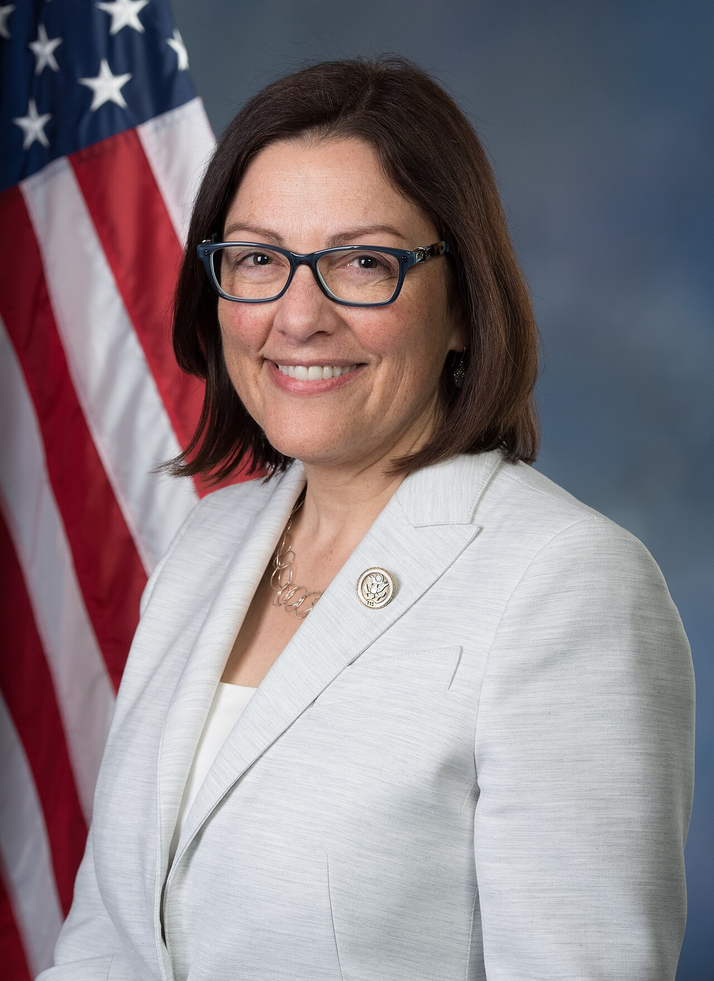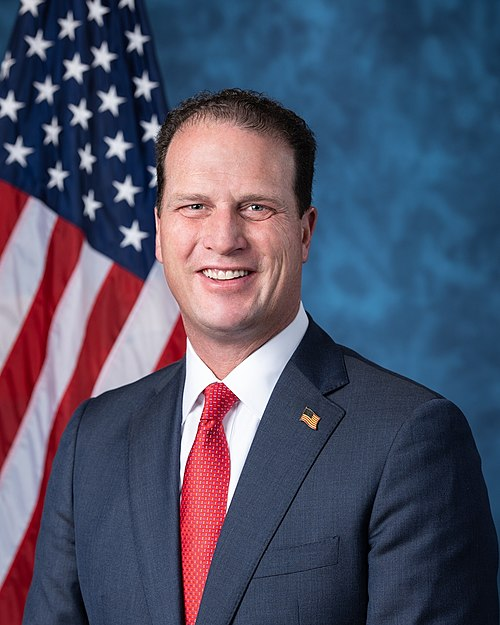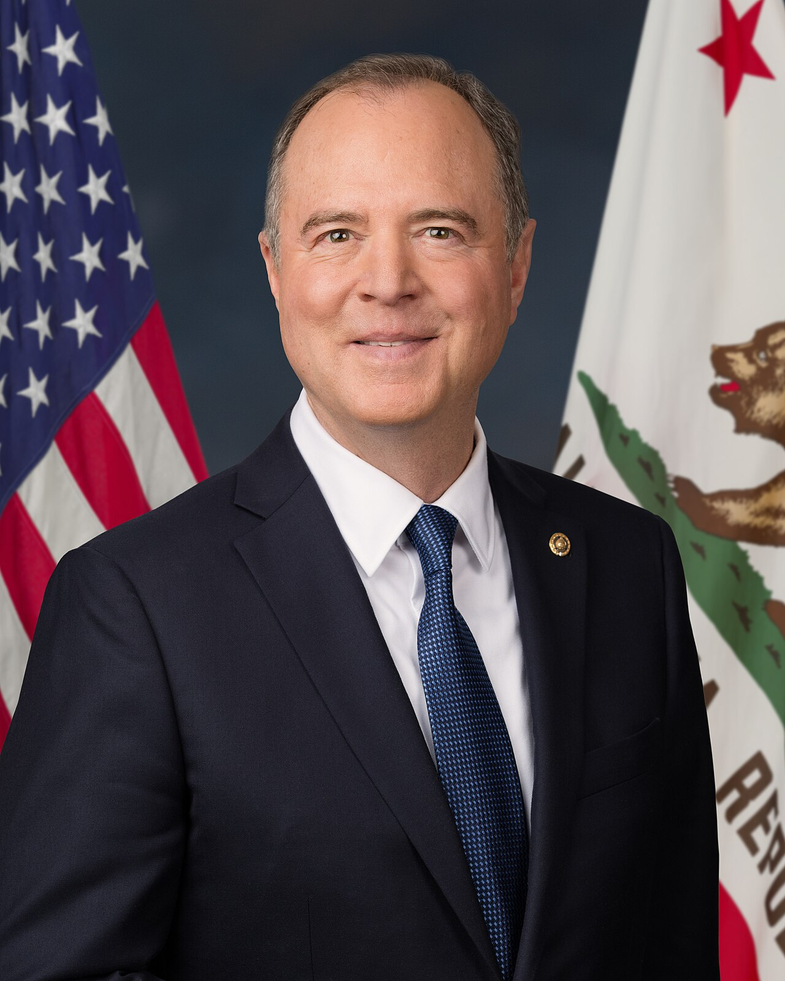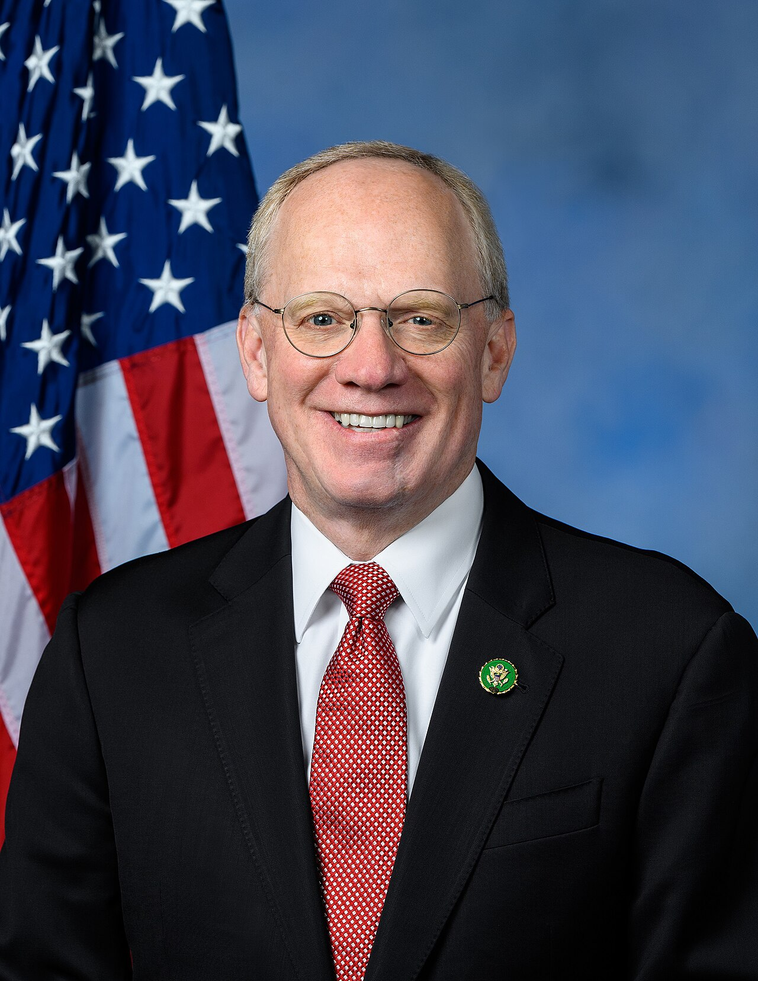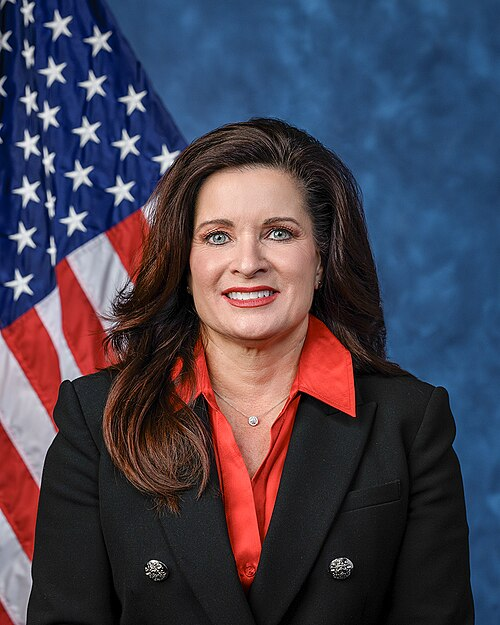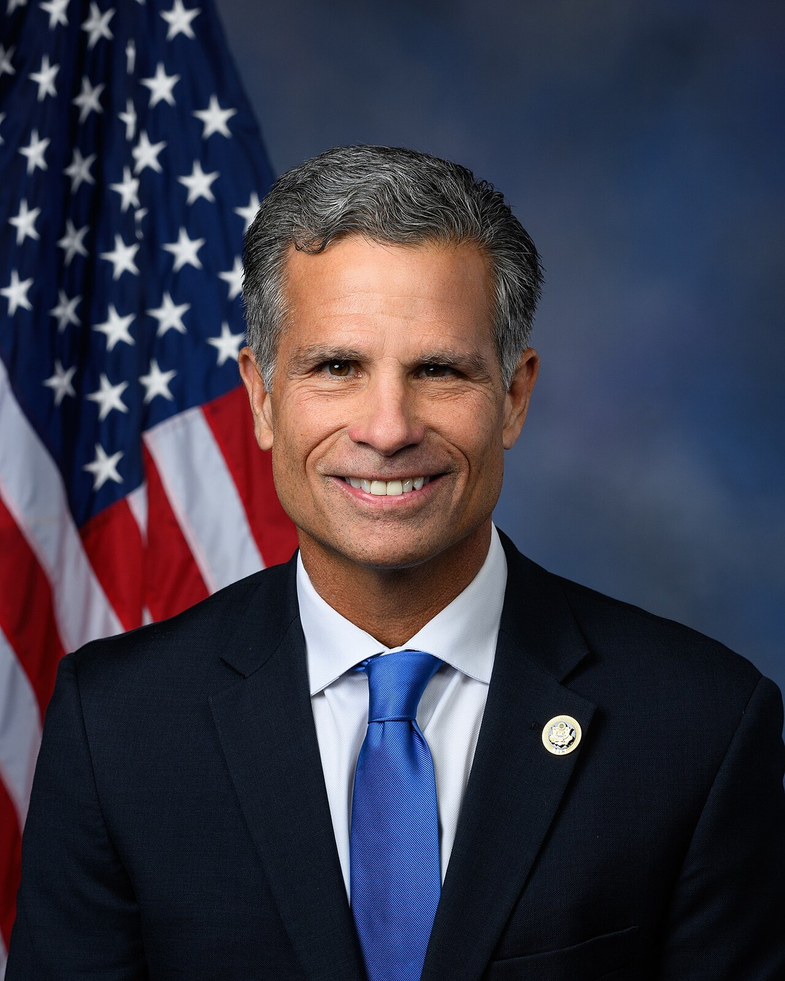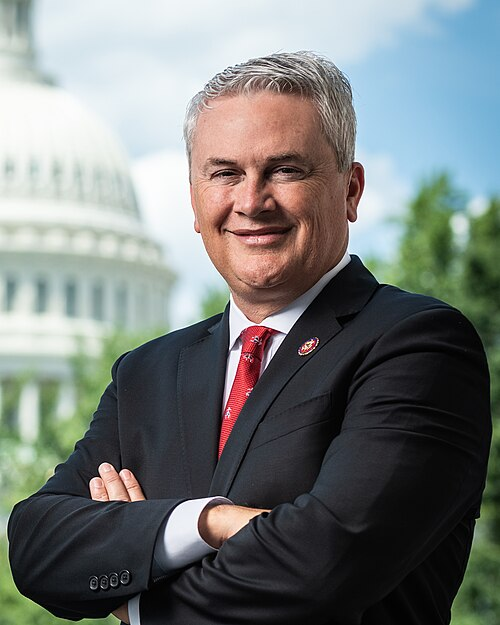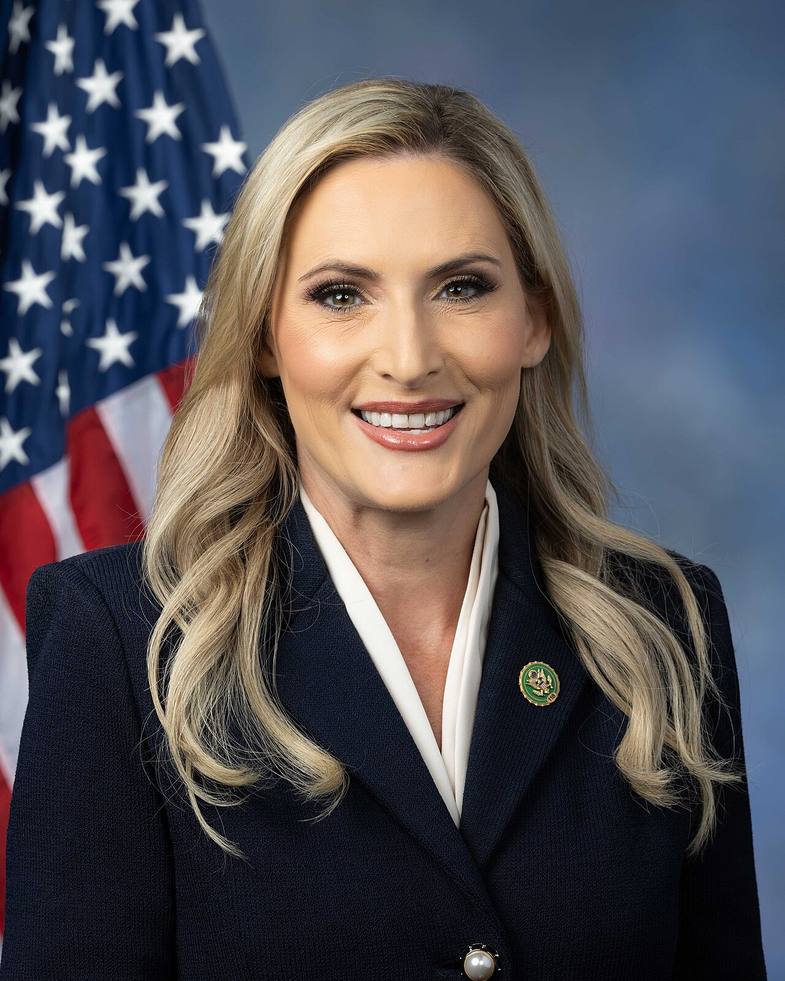|
Markwayne Mullin
R / Senate
|
AAPL
Apple Inc. - Common Stock
|
Purchase
$100,001 - $250,000
|
Jan 16, 2026
|
Dec 29, 2025
|
-7.21%
|
|
Markwayne Mullin
R / Senate
|
GOOGL
Alphabet Inc. - Class A Common Stock
|
Purchase
$100,001 - $250,000
|
Jan 16, 2026
|
Dec 29, 2025
|
+4.69%
|
|
Tommy Tuberville
R / Senate
|
GOOGL
Alphabet Cl A
|
Sale (Full)
$1,001 - $15,000
|
Jan 15, 2026
|
Dec 17, 2025
|
+8.18%
|
|
John Boozman
R / Senate
|
AAPL
Apple Inc
|
Purchase
$1,001 - $15,000
|
Jan 13, 2026
|
Dec 17, 2025
|
-9.04%
|
|
Tommy Tuberville
R / Senate
|
AAPL
Apple Inc
|
Sale (Full)
$50,001 - $100,000
|
Jan 15, 2026
|
Dec 17, 2025
|
-9.04%
|
|
Shelley Moore Capito
R / Senate
|
AAPL
Apple Inc
|
Sale (Partial)
$1,001 - $15,000
|
Jan 06, 2026
|
Dec 16, 2025
|
-8.85%
|
|
Shelley Moore Capito
R / Senate
|
GOOGL
Alphabet Cl A
|
Sale (Partial)
$1,001 - $15,000
|
Jan 06, 2026
|
Dec 16, 2025
|
+5.74%
|
|
Cleo Fields
D / House
|
GOOGL
ALPHABET INC. - CLASS A COMMON STOCK
|
Purchase
$15,001 - $50,000
|
Dec 17, 2025
|
Dec 15, 2025
|
+5.45%
|
|
Cleo Fields
D / House
|
GOOGL
ALPHABET INC. - CLASS A COMMON STOCK
|
Purchase
$100,001 - $250,000
|
Dec 17, 2025
|
Dec 11, 2025
|
+5.25%
|
|
Dan Newhouse
R / House
|
GOOGL
ALPHABET INC. - CLASS A COMMON STOCK
|
Sale
$1,001 - $15,000
|
Jan 15, 2026
|
Dec 11, 2025
|
+5.25%
|
|
Cleo Fields
D / House
|
GOOGL
ALPHABET INC. - CLASS A COMMON STOCK
|
Purchase
$50,001 - $100,000
|
Dec 17, 2025
|
Dec 09, 2025
|
+2.80%
|
|
Cleo Fields
D / House
|
GOOGL
ALPHABET INC. - CLASS A COMMON STOCK
|
Purchase
$50,001 - $100,000
|
Dec 17, 2025
|
Dec 01, 2025
|
+3.11%
|
|
Gilbert Ray Cisneros, Jr.
D / House
|
GOOGL
ALPHABET INC. - CLASS A COMMON STOCK
|
Sale
$1,001 - $15,000
|
Dec 15, 2025
|
Nov 26, 2025
|
+1.36%
|
|
Ro Khanna
D / House
|
GOOGL
ALPHABET INC. CMN CLASS A
|
Sale
$1,001 - $15,000
|
Dec 08, 2025
|
Nov 24, 2025
|
+0.15%
|
|
Debbie Dingell
D / House
|
AAPL
APPLE INC. - COMMON STOCK
|
Sale
$50,001 - $100,000
|
Dec 06, 2025
|
Nov 24, 2025
|
-10.83%
|
|
Ro Khanna
D / House
|
FB
META PLATFORMS INC-CLASS A CMN CLASS A
|
Purchase
$1,001 - $15,000
|
Dec 08, 2025
|
Nov 24, 2025
|
-1.97%
|
|
Gilbert Ray Cisneros, Jr.
D / House
|
AAPL
APPLE INC. - COMMON STOCK
|
Purchase
$1,001 - $15,000
|
Dec 15, 2025
|
Nov 18, 2025
|
-9.25%
|
|
Gilbert Ray Cisneros, Jr.
D / House
|
GOOGL
ALPHABET INC. - CLASS A COMMON STOCK
|
Purchase
$1,001 - $15,000
|
Dec 15, 2025
|
Nov 18, 2025
|
+11.29%
|
|
Gilbert Ray Cisneros, Jr.
D / House
|
FB
META PLATFORMS, INC. - CLASS A
|
Purchase
$1,001 - $15,000
|
Dec 15, 2025
|
Nov 18, 2025
|
-2.81%
|
|
Cleo Fields
D / House
|
AAPL
APPLE INC. - COMMON STOCK
|
Purchase
$1,001 - $15,000
|
Nov 19, 2025
|
Nov 13, 2025
|
-9.31%
|
|
Ro Khanna
D / House
|
FB
META PLATFORMS INC-CLASS A CMN CLASS A
|
Purchase
$15,001 - $50,000
|
Dec 08, 2025
|
Nov 07, 2025
|
-1.50%
|
|
Ro Khanna
D / House
|
AAPL
DC APPLE INC. CMN
|
Sale
$15,001 - $50,000
|
Dec 08, 2025
|
Nov 07, 2025
|
-7.93%
|
|
Richard McCormick
R / House
|
AAPL
APPLE INC. - COMMON STOCK
|
Purchase
$1,001 - $15,000
|
Dec 09, 2025
|
Nov 05, 2025
|
-7.53%
|
|
David Taylor
R / House
|
GOOGL
ALPHABET INC. - CLASS A COMMON STOCK
|
Sale
$1,001 - $15,000
|
Nov 18, 2025
|
Nov 03, 2025
|
+15.07%
|
|
David Taylor
R / House
|
GOOGL
ALPHABET INC. - CLASS A COMMON STOCK
|
Sale
$1,001 - $15,000
|
Nov 18, 2025
|
Nov 03, 2025
|
+15.07%
|
|
Michael T. McCaul
R / House
|
GOOGL
ALPHABET INC SHS CLA
|
Purchase
$15,001 - $50,000
|
Nov 10, 2025
|
Oct 31, 2025
|
+15.92%
|
|
Lisa C. McClain
R / House
|
GOOGL
ALPHABET INC. - CLASS A COMMON STOCK
|
Sale
$1,001 - $15,000
|
Nov 21, 2025
|
Oct 31, 2025
|
+15.92%
|
|
Michael T. McCaul
R / House
|
FB
META PLATFORMS INC
|
Sale
$50,001 - $100,000
|
Nov 10, 2025
|
Oct 31, 2025
|
-0.23%
|
|
Lisa C. McClain
R / House
|
AAPL
APPLE INC. - COMMON STOCK
|
Sale
$15,001 - $50,000
|
Nov 21, 2025
|
Oct 31, 2025
|
-6.93%
|
|
Lisa C. McClain
R / House
|
AAPL
APPLE INC. - COMMON STOCK
|
Sale
$15,001 - $50,000
|
Nov 21, 2025
|
Oct 30, 2025
|
-7.58%
|
|
David Taylor
R / House
|
AAPL
APPLE INC. - COMMON STOCK
|
Sale
$1,001 - $15,000
|
Nov 03, 2025
|
Oct 30, 2025
|
-7.58%
|
|
David Taylor
R / House
|
AAPL
APPLE INC. - COMMON STOCK
|
Sale
$1,001 - $15,000
|
Nov 03, 2025
|
Oct 30, 2025
|
-7.58%
|
|
Cleo Fields
D / House
|
AAPL
APPLE INC. - COMMON STOCK
|
Purchase
$250,001 - $500,000
|
Nov 12, 2025
|
Oct 30, 2025
|
-7.58%
|
|
Lisa C. McClain
R / House
|
AAPL
APPLE INC. - COMMON STOCK
|
Purchase
$15,001 - $50,000
|
Nov 21, 2025
|
Oct 30, 2025
|
-7.58%
|
|
Lisa C. McClain
R / House
|
GOOGL
ALPHABET INC. - CLASS A COMMON STOCK
|
Purchase
$1,001 - $15,000
|
Nov 21, 2025
|
Oct 30, 2025
|
+15.50%
|
|
Lisa C. McClain
R / House
|
GOOGL
ALPHABET INC. - CLASS A COMMON STOCK
|
Sale
$1,001 - $15,000
|
Nov 21, 2025
|
Oct 30, 2025
|
+15.50%
|
|
Michael T. McCaul
R / House
|
GOOGL
ALPHABET INC SHS CLA
|
Sale
$15,001 - $50,000
|
Nov 10, 2025
|
Oct 27, 2025
|
+21.59%
|
|
Michael T. McCaul
R / House
|
FB
META PLATFORMS INC
|
Sale
$50,001 - $100,000
|
Nov 10, 2025
|
Oct 27, 2025
|
+0.51%
|
|
Michael T. McCaul
R / House
|
GOOGL
ALPHABET INC-CLA
|
Sale
$1,001 - $15,000
|
Nov 10, 2025
|
Oct 27, 2025
|
+21.59%
|
|
Cleo Fields
D / House
|
GOOGL
ALPHABET INC. - CLASS A COMMON STOCK
|
Purchase
$100,001 - $250,000
|
Nov 12, 2025
|
Oct 23, 2025
|
+27.37%
|
|
Cleo Fields
D / House
|
AAPL
APPLE INC. - COMMON STOCK
|
Purchase
$100,001 - $250,000
|
Nov 12, 2025
|
Oct 23, 2025
|
-4.58%
|
|
Nancy Pelosi
D / House
|
AAPL
APPLE INC. - COMMON STOCK
|
Sale
$100,001 - $250,000
|
Oct 24, 2025
|
Oct 22, 2025
|
-4.73%
|
|
Gilbert Ray Cisneros, Jr.
D / House
|
GOOGL
ALPHABET INC. - CLASS A COMMON STOCK
|
Purchase
$1,001 - $15,000
|
Nov 18, 2025
|
Oct 17, 2025
|
+26.13%
|
|
Gilbert Ray Cisneros, Jr.
D / House
|
AAPL
APPLE INC. - COMMON STOCK
|
Purchase
$1,001 - $15,000
|
Nov 18, 2025
|
Oct 17, 2025
|
-2.86%
|
|
Ro Khanna
D / House
|
FB
META PLATFORMS INC-CLASS A CMN CLASS A
|
Purchase
$1,001 - $15,000
|
Nov 06, 2025
|
Oct 17, 2025
|
-0.95%
|
|
Ro Khanna
D / House
|
AAPL
APPLE INC. CMN
|
Sale
$15,001 - $50,000
|
Nov 06, 2025
|
Oct 17, 2025
|
-2.86%
|
|
Ro Khanna
D / House
|
GOOGL
ALPHABET INC. CMN CLASS A
|
Purchase
$1,001 - $15,000
|
Nov 06, 2025
|
Oct 17, 2025
|
+26.13%
|
|
Lisa C. McClain
R / House
|
AAPL
APPLE INC. - COMMON STOCK
|
Sale
$1,001 - $15,000
|
Nov 21, 2025
|
Oct 14, 2025
|
-1.36%
|
|
Dwight Evans
D / House
|
GOOGL
ALPHABET INC. - CLASS A COMMON STOCK
|
Sale
$15,001 - $50,000
|
Oct 30, 2025
|
Oct 10, 2025
|
+33.57%
|
|
Cleo Fields
D / House
|
GOOGL
ALPHABET INC. - CLASS A COMMON STOCK
|
Purchase
$15,001 - $50,000
|
Oct 30, 2025
|
Oct 10, 2025
|
+33.57%
|
|
Tommy Tuberville
R / Senate
|
AAPL
Apple Inc
|
Sale (Full)
$15,001 - $50,000
|
Nov 15, 2025
|
Oct 07, 2025
|
-3.77%
|
|
Tommy Tuberville
R / Senate
|
GOOGL
Alphabet Inc. - Class A Common Stock
|
Sale (Full)
$15,001 - $50,000
|
Nov 15, 2025
|
Oct 07, 2025
|
+30.88%
|
|
Val T. Hoyle
D / House
|
AAPL
APPLE INC. - COMMON STOCK
|
Sale
$15,001 - $50,000
|
Oct 10, 2025
|
Sep 23, 2025
|
-3.58%
|
|
Val T. Hoyle
D / House
|
GOOGL
ALPHABET INC. - CLASS A COMMON STOCK
|
Sale
$15,001 - $50,000
|
Oct 10, 2025
|
Sep 23, 2025
|
+27.11%
|
|
Adam B. Schiff
D / Senate
|
AAPL
Apple Inc
|
Sale (Partial)
$15,001 - $50,000
|
Sep 30, 2025
|
Sep 22, 2025
|
-3.68%
|
|
Ro Khanna
D / House
|
GOOGL
ALPHABET INC. CMN CLASS A
|
Purchase
$1,001 - $15,000
|
Oct 03, 2025
|
Sep 19, 2025
|
+25.58%
|
|
Ro Khanna
D / House
|
AAPL
APPLE INC. CMN
|
Sale
$1,001 - $15,000
|
Oct 03, 2025
|
Sep 19, 2025
|
+0.11%
|
|
Michael T. McCaul
R / House
|
GOOGL
ALPHABET INC-CL A
|
Sale
$1,001 - $15,000
|
Oct 10, 2025
|
Sep 18, 2025
|
+26.48%
|
|
Shelley Moore Capito
R / Senate
|
AAPL
Apple Inc
|
Sale (Partial)
$15,001 - $50,000
|
Oct 05, 2025
|
Sep 18, 2025
|
+2.96%
|
|
John Boozman
R / Senate
|
GOOGL
Alphabet Cl A
|
Purchase
$15,001 - $50,000
|
Oct 10, 2025
|
Sep 17, 2025
|
+27.30%
|
|
Lisa C. McClain
R / House
|
AAPL
APPLE INC. - COMMON STOCK
|
Purchase
$1,001 - $15,000
|
Oct 22, 2025
|
Sep 11, 2025
|
+5.87%
|
|
Cleo Fields
D / House
|
AAPL
APPLE INC. - COMMON STOCK
|
Purchase
$50,001 - $100,000
|
Sep 30, 2025
|
Sep 10, 2025
|
+6.60%
|
|
Sheldon Whitehouse
D / Senate
|
AAPL
Apple Inc
|
Sale (Partial)
$15,001 - $50,000
|
Oct 03, 2025
|
Sep 04, 2025
|
-0.05%
|
|
Michael T. McCaul
R / House
|
GOOGL
ALPHABET INC SHS CLA
|
Purchase
$1,001 - $15,000
|
Oct 10, 2025
|
Sep 04, 2025
|
+35.44%
|
|
David Taylor
R / House
|
GOOGL
ALPHABET INC. - CLASS A COMMON STOCK
|
Sale
$1,001 - $15,000
|
Sep 16, 2025
|
Sep 03, 2025
|
+35.57%
|
|
David Taylor
R / House
|
GOOGL
ALPHABET INC. - CLASS A COMMON STOCK
|
Sale
$1,001 - $15,000
|
Sep 16, 2025
|
Sep 03, 2025
|
+35.57%
|
|
Cleo Fields
D / House
|
AAPL
APPLE INC. - COMMON STOCK
|
Purchase
$100,001 - $250,000
|
Sep 30, 2025
|
Sep 03, 2025
|
-0.34%
|
|
Ro Khanna
D / House
|
FB
META PLATFORMS INC-CLASS A CMN CLASS A
|
Sale
$1,001 - $15,000
|
Sep 09, 2025
|
Aug 26, 2025
|
-3.38%
|
|
Ro Khanna
D / House
|
FB
META PLATFORMS INC-CLASS A CMN CLASS A
|
Sale
$1,001 - $15,000
|
Sep 09, 2025
|
Aug 26, 2025
|
-3.38%
|
|
Michael T. McCaul
R / House
|
GOOGL
ALPHABET INC SHS CLA
|
Sale
$15,001 - $50,000
|
Sep 11, 2025
|
Aug 21, 2025
|
+56.34%
|
|
Michael T. McCaul
R / House
|
GOOGL
ALPHABET INC SHS CLA
|
Sale
$15,001 - $50,000
|
Sep 11, 2025
|
Aug 21, 2025
|
+56.34%
|
|
Michael T. McCaul
R / House
|
GOOGL
ALPHABET INC-CL A
|
Sale
$1,001 - $15,000
|
Sep 11, 2025
|
Aug 21, 2025
|
+56.34%
|
|
Michael T. McCaul
R / House
|
GOOGL
ALPHABET INC-CLA
|
Sale
$1,001 - $15,000
|
Sep 11, 2025
|
Aug 21, 2025
|
+56.34%
|
|
Michael T. McCaul
R / House
|
FB
META PLATFORMS INC
|
Sale
$50,001 - $100,000
|
Sep 11, 2025
|
Aug 21, 2025
|
-4.18%
|
|
Michael T. McCaul
R / House
|
FB
META PLATFORMS INC
|
Sale
$50,001 - $100,000
|
Sep 11, 2025
|
Aug 21, 2025
|
-4.18%
|
|
Cleo Fields
D / House
|
AAPL
APPLE INC. - COMMON STOCK
|
Purchase
$1,001 - $15,000
|
Sep 03, 2025
|
Aug 14, 2025
|
+2.48%
|
|
Adam Smith
D / House
|
AAPL
BENEFICIARY C�������: THIS STOCK WAS PART OF THE INHERITED BENEFICIARY IRA SPOUSE RECEIVED UPON THE DEATH OF HER FATHER IN 2021. SPOUSE HAS CHOSEN TO DIVEST OF ALL THE STOCKS CONTAINED WITHIN THIS IRA. AS THIS IS AN INHERITED BENEFICIARY IRA, THERE ARE NO CAPITAL GAINS ON THIS SALE. SP APPLE INC. - COMMON STOCK
|
Sale
$1,001 - $15,000
|
Aug 08, 2025
|
Aug 08, 2025
|
+2.82%
|
|
Ro Khanna
D / House
|
AAPL
APPLE INC. CMN
|
Purchase
$1,001 - $15,000
|
Sep 09, 2025
|
Aug 04, 2025
|
+16.02%
|
|
Ro Khanna
D / House
|
AAPL
APPLE INC. CMN
|
Purchase
$1,001 - $15,000
|
Sep 09, 2025
|
Aug 04, 2025
|
+16.02%
|
|
Ro Khanna
D / House
|
GOOGL
ALPHABET INC. CMN CLASS A
|
Purchase
$1,001 - $15,000
|
Sep 09, 2025
|
Aug 04, 2025
|
+59.55%
|
|
Ro Khanna
D / House
|
GOOGL
ALPHABET INC. CMN CLASS A
|
Purchase
$1,001 - $15,000
|
Sep 09, 2025
|
Aug 04, 2025
|
+59.55%
|
|
Cleo Fields
D / House
|
AAPL
APPLE INC. - COMMON STOCK
|
Purchase
$15,001 - $50,000
|
Sep 03, 2025
|
Aug 01, 2025
|
+14.95%
|
|
Shelley Moore Capito
R / Senate
|
GOOGL
Alphabet Cl A
|
Purchase
$1,001 - $15,000
|
Aug 04, 2025
|
Jul 29, 2025
|
+59.65%
|
|
Cleo Fields
D / House
|
AAPL
APPLE INC. - COMMON STOCK
|
Purchase
$100,001 - $250,000
|
Aug 06, 2025
|
Jul 29, 2025
|
+12.02%
|
|
Ro Khanna
D / House
|
AAPL
APPLE INC. CMN
|
Purchase
$15,001 - $50,000
|
Aug 07, 2025
|
Jul 25, 2025
|
+10.85%
|
|
Ro Khanna
D / House
|
AAPL
APPLE INC. CMN
|
Purchase
$15,001 - $50,000
|
Aug 07, 2025
|
Jul 25, 2025
|
+10.85%
|
|
Lisa C. McClain
R / House
|
AAPL
APPLE INC. - COMMON STOCK
|
Sale
$1,001 - $15,000
|
Aug 13, 2025
|
Jul 22, 2025
|
+9.12%
|
|
Angus S. King Jr.
I / Senate
|
GOOGL
Alphabet Inc. - Class A Common Stock
|
Purchase
$1,001 - $15,000
|
Aug 18, 2025
|
Jul 21, 2025
|
+63.53%
|
|
Shelley Moore Capito
R / Senate
|
AAPL
Apple Inc
|
Sale (Partial)
$1,001 - $15,000
|
Aug 04, 2025
|
Jul 18, 2025
|
+10.74%
|
|
Val T. Hoyle
D / House
|
GOOGL
ALPHABET INC. - CLASS A COMMON STOCK
|
Purchase
$1,001 - $15,000
|
Sep 12, 2025
|
Jul 14, 2025
|
+71.01%
|
|
Michael T. McCaul
R / House
|
FB
META PLATFORMS INC
|
Sale
$15,001 - $50,000
|
Aug 12, 2025
|
Jul 11, 2025
|
-5.90%
|
|
Ritchie Torres
D / House
|
AAPL
C�������: THIS INVESTMENT IS HELD WITHIN A PUBLICLY AVAILABLE, WIDELY HELD INDEPENDENTLY MANAGED PORTFOLIO OVER WHICH I HAVE NO AUTHORITY TO EXERCISE CONTROL OVER OR INFLUENCE THE FINANCIAL INTERESTS HELD BY THE PORTFOLIO. THE ASSETS OF THE PORTFOLIO ARE WIDELY DIVERSIFIED, AND ALL INVESTMENT DECISIONS ARE MADE SOLELY BY THE INDEPENDENT MANAGER, WITHOUT MY INPUT OR DIRECTION. APPLE INC. - COMMON STOCK
|
Sale
$1,001 - $15,000
|
Aug 20, 2025
|
Jul 11, 2025
|
+10.04%
|
|
Michael T. McCaul
R / House
|
GOOGL
ALPHABET INC SHS CL A
|
Sale
$50,001 - $100,000
|
Aug 13, 2025
|
Jul 11, 2025
|
+72.17%
|
|
Michael T. McCaul
R / House
|
GOOGL
ALPHABET INC SHS CLA
|
Sale
$50,001 - $100,000
|
Aug 12, 2025
|
Jul 11, 2025
|
+72.17%
|
|
Ritchie Torres
D / House
|
GOOGL
DIRECTION. ALPHABET INC. - CLASS A COMMON STOCK
|
Sale
$1,001 - $15,000
|
Aug 20, 2025
|
Jul 11, 2025
|
+72.17%
|
|
Michael T. McCaul
R / House
|
FB
META PLATFORMS INC
|
Sale
$15,001 - $50,000
|
Aug 13, 2025
|
Jul 11, 2025
|
-5.90%
|
|
Val T. Hoyle
D / House
|
GOOGL
ALPHABET INC. - CLASS A COMMON STOCK
|
Purchase
$1,001 - $15,000
|
Sep 12, 2025
|
Jul 02, 2025
|
+73.19%
|
|
Julia Letlow
R / House
|
GOOGL
ALPHABET INC. - CLASS A COMMON STOCK
|
Purchase
$1,001 - $15,000
|
Jan 13, 2026
|
Jul 02, 2025
|
+73.19%
|
|
Ro Khanna
D / House
|
AAPL
APPLE INC. CMN
|
Sale
$15,001 - $50,000
|
Aug 07, 2025
|
Jul 02, 2025
|
+8.75%
|
|
Ro Khanna
D / House
|
AAPL
APPLE INC. CMN
|
Sale
$15,001 - $50,000
|
Aug 07, 2025
|
Jul 02, 2025
|
+8.75%
|
|
Ro Khanna
D / House
|
AAPL
APPLE INC. CMN
|
Purchase
$1,001 - $15,000
|
Aug 07, 2025
|
Jul 01, 2025
|
+10.92%
|
|
Cleo Fields
D / House
|
AAPL
APPLE INC. - COMMON STOCK
|
Purchase
$15,001 - $50,000
|
Jul 01, 2025
|
Jun 30, 2025
|
+12.56%
|
|
Cleo Fields
D / House
|
AAPL
APPLE INC. - COMMON STOCK
|
Purchase
$50,001 - $100,000
|
Jul 01, 2025
|
Jun 30, 2025
|
+12.56%
|
|
Cleo Fields
D / House
|
AAPL
APPLE INC. - COMMON STOCK
|
Purchase
$50,001 - $100,000
|
Jul 01, 2025
|
Jun 30, 2025
|
+12.56%
|
|
Cleo Fields
D / House
|
AAPL
APPLE INC. - COMMON STOCK
|
Purchase
$100,001 - $250,000
|
Jul 01, 2025
|
Jun 30, 2025
|
+12.56%
|
|
Michael T. McCaul
R / House
|
FB
META PLATFORMS INC
|
Sale
$250,001 - $500,000
|
Jul 07, 2025
|
Jun 27, 2025
|
-6.59%
|
|
Michael T. McCaul
R / House
|
GOOGL
ALPHABET INC SHS CLA
|
Sale
$250,001 - $500,000
|
Jul 07, 2025
|
Jun 27, 2025
|
+72.65%
|
|
Cleo Fields
D / House
|
AAPL
APPLE INC. - COMMON STOCK
|
Purchase
$50,001 - $100,000
|
Jul 01, 2025
|
Jun 25, 2025
|
+13.13%
|
|
Cleo Fields
D / House
|
AAPL
APPLE INC. - COMMON STOCK
|
Purchase
$1,001 - $15,000
|
Jul 01, 2025
|
Jun 25, 2025
|
+13.13%
|
|
Cleo Fields
D / House
|
AAPL
APPLE INC. - COMMON STOCK
|
Purchase
$100,001 - $250,000
|
Jul 01, 2025
|
Jun 25, 2025
|
+13.13%
|
|
Lisa C. McClain
R / House
|
GOOGL
ALPHABET INC. - CLASS A COMMON STOCK
|
Purchase
$1,001 - $15,000
|
Aug 13, 2025
|
Jun 24, 2025
|
+84.18%
|
|
Ro Khanna
D / House
|
AAPL
APPLE INC. CMN
|
Sale
$15,001 - $50,000
|
Jul 09, 2025
|
Jun 23, 2025
|
+11.86%
|
|
Ro Khanna
D / House
|
GOOGL
ALPHABET INC. CMN CLASS A
|
Purchase
$1,001 - $15,000
|
Jul 09, 2025
|
Jun 23, 2025
|
+84.82%
|
|
Lisa C. McClain
R / House
|
AAPL
APPLE INC. - COMMON STOCK
|
Purchase
$1,001 - $15,000
|
Aug 13, 2025
|
Jun 17, 2025
|
+14.82%
|
|
Michael T. McCaul
R / House
|
GOOGL
ALPHABET INC-CLA
|
Sale
$1,001 - $15,000
|
Jul 07, 2025
|
Jun 16, 2025
|
+71.88%
|
|
Scott Franklin
R / House
|
AAPL
APPLE INC. - COMMON STOCK
|
Sale
$15,001 - $50,000
|
Jul 14, 2025
|
Jun 16, 2025
|
+13.98%
|
|
Michael T. McCaul
R / House
|
GOOGL
ALPHABET INC SHS CLA
|
Sale
$50,001 - $100,000
|
Jul 07, 2025
|
Jun 16, 2025
|
+71.88%
|
|
Michael T. McCaul
R / House
|
FB
META PLATFORMS INC
|
Sale
$100,001 - $250,000
|
Jul 07, 2025
|
Jun 16, 2025
|
-
|
|
Michael T. McCaul
R / House
|
GOOGL
ALPHABET INC-CL A
|
Sale
$1,001 - $15,000
|
Jul 07, 2025
|
Jun 09, 2025
|
+72.01%
|
|
Michael T. McCaul
R / House
|
FB
META PLATFORMS INC
|
Sale
$1,001 - $15,000
|
Jul 07, 2025
|
Jun 09, 2025
|
-
|
|
Lisa C. McClain
R / House
|
AAPL
APPLE INC. - COMMON STOCK
|
Purchase
$1,001 - $15,000
|
Aug 13, 2025
|
Jun 09, 2025
|
+11.45%
|
|
Cleo Fields
D / House
|
AAPL
APPLE INC. - COMMON STOCK
|
Purchase
$1,001 - $15,000
|
Jul 01, 2025
|
Jun 09, 2025
|
+11.45%
|
|
Cleo Fields
D / House
|
AAPL
APPLE INC. - COMMON STOCK
|
Purchase
$1,001 - $15,000
|
Jul 01, 2025
|
Jun 09, 2025
|
+11.45%
|
|
Michael T. McCaul
R / House
|
FB
META PLATFORMS INC
|
Sale
$15,001 - $50,000
|
Jul 07, 2025
|
Jun 06, 2025
|
-
|
|
Val T. Hoyle
D / House
|
AAPL
APPLE INC. - COMMON STOCK
|
Purchase
$1,001 - $15,000
|
Sep 12, 2025
|
Jun 06, 2025
|
+9.79%
|
|
John W. Rose
R / House
|
GOOGL
ALPHABET INC. - CLASS A COMMON STOCK
|
Sale
$1,000,001 - $5,000,000
|
Jul 04, 2025
|
Jun 03, 2025
|
+82.51%
|
|
Cleo Fields
D / House
|
AAPL
APPLE INC. - COMMON STOCK
|
Purchase
$100,001 - $250,000
|
Jul 01, 2025
|
Jun 03, 2025
|
+9.63%
|
|
Cleo Fields
D / House
|
AAPL
APPLE INC. - COMMON STOCK
|
Purchase
$1,001 - $15,000
|
Jul 01, 2025
|
Jun 03, 2025
|
+9.63%
|
|
Tim Moore
R / House
|
AAPL
APPLE INC. - COMMON STOCK
|
Sale
$100,001 - $250,000
|
Jul 09, 2025
|
Jun 02, 2025
|
+9.96%
|
|
Tim Moore
R / House
|
AAPL
APPLE INC. - COMMON STOCK
|
Purchase
$50,001 - $100,000
|
Jul 09, 2025
|
Jun 02, 2025
|
+9.96%
|
|
Ro Khanna
D / House
|
AAPL
APPLE INC. CMN
|
Purchase
$1,001 - $15,000
|
Jun 10, 2025
|
May 28, 2025
|
+9.76%
|
|
John Boozman
R / Senate
|
GOOGL
Alphabet Cl A
|
Purchase
$1,001 - $15,000
|
Jun 14, 2025
|
May 20, 2025
|
+84.50%
|
|
Ro Khanna
D / House
|
GOOGL
ALPHABET INC. CMN CLASS A
|
Sale
$15,001 - $50,000
|
Jun 10, 2025
|
May 19, 2025
|
+81.83%
|
|
Ro Khanna
D / House
|
AAPL
APPLE INC. CMN
|
Purchase
$15,001 - $50,000
|
Jun 10, 2025
|
May 19, 2025
|
+6.07%
|
|
Jefferson Shreve
R / House
|
GOOGL
ALPHABET INC. - CLASS A COMMON STOCK
|
Sale
$100,001 - $250,000
|
Jun 22, 2025
|
May 12, 2025
|
+89.56%
|
|
Jefferson Shreve
R / House
|
AAPL
APPLE INC. - COMMON STOCK
|
Sale
$100,001 - $250,000
|
Jun 22, 2025
|
May 12, 2025
|
+2.53%
|
|
Jefferson Shreve
R / House
|
AAPL
APPLE INC. - COMMON STOCK
|
Sale
$500,001 - $1,000,000
|
Jun 22, 2025
|
May 08, 2025
|
+6.91%
|
|
Shelley Moore Capito
R / Senate
|
GOOGL
Alphabet Cl A
|
Purchase
$1,001 - $15,000
|
Jun 13, 2025
|
May 08, 2025
|
+91.42%
|
|
Marjorie Taylor Greene
R / House
|
AAPL
APPLE INC. - COMMON STOCK
|
Purchase
$1,001 - $15,000
|
May 06, 2025
|
May 05, 2025
|
+5.68%
|
|
Julia Letlow
R / House
|
AAPL
APPLE INC. - COMMON STOCK
|
Sale
$1,001 - $15,000
|
Jan 13, 2026
|
May 01, 2025
|
-4.12%
|
|
Shelley Moore Capito
R / Senate
|
GOOGL
Alphabet Cl A
|
Purchase
$1,001 - $15,000
|
May 07, 2025
|
Apr 29, 2025
|
+81.20%
|
|
Ro Khanna
D / House
|
FB
META PLATFORMS INC-CLASS A CMN CLASS A
|
Purchase
$1,001 - $15,000
|
May 12, 2025
|
Apr 23, 2025
|
-
|
|
Bruce Westerman
R / House
|
GOOGL
ALPHABET INC. - CLASS A COMMON STOCK
|
Sale
$1,001 - $15,000
|
May 12, 2025
|
Apr 21, 2025
|
+88.81%
|
|
Jonathan L. Jackson
D / House
|
GOOGL
ALPHABET INC. - CLASS A COMMON STOCK
|
Sale
$15,001 - $50,000
|
May 13, 2025
|
Apr 21, 2025
|
+88.81%
|
|
Bruce Westerman
R / House
|
AAPL
APPLE INC. - COMMON STOCK
|
Sale
$15,001 - $50,000
|
May 12, 2025
|
Apr 21, 2025
|
-2.37%
|
|
Ro Khanna
D / House
|
AAPL
APPLE INC. CMN
|
Sale
$15,001 - $50,000
|
May 12, 2025
|
Apr 15, 2025
|
-2.33%
|
|
Tommy Tuberville
R / Senate
|
AAPL
Apple Inc
|
Sale (Full)
$15,001 - $50,000
|
May 15, 2025
|
Apr 15, 2025
|
-2.33%
|
|
Val T. Hoyle
D / House
|
GOOGL
ALPHABET INC. - CLASS A COMMON STOCK
|
Sale
$1,001 - $15,000
|
Sep 12, 2025
|
Apr 15, 2025
|
+82.38%
|
|
Tommy Tuberville
R / Senate
|
GOOGL
Alphabet Cl A
|
Sale (Full)
$15,001 - $50,000
|
May 15, 2025
|
Apr 15, 2025
|
+82.38%
|
|
Sheldon Whitehouse
D / Senate
|
AAPL
Apple Inc
|
Sale (Partial)
$15,001 - $50,000
|
May 13, 2025
|
Apr 14, 2025
|
-2.20%
|
|
Dan Newhouse
R / House
|
GOOGL
ALPHABET INC. - CLASS A COMMON STOCK
|
Sale
$1,001 - $15,000
|
May 16, 2025
|
Apr 11, 2025
|
+80.34%
|
|
Michael T. McCaul
R / House
|
GOOGL
ALPHABET INC
|
Sale
$1,001 - $15,000
|
May 12, 2025
|
Apr 11, 2025
|
+80.34%
|
|
Michael T. McCaul
R / House
|
GOOGL
ALPHABET INC
|
Sale
$1,001 - $15,000
|
May 12, 2025
|
Apr 11, 2025
|
+80.34%
|
|
Michael T. McCaul
R / House
|
GOOGL
ALPHABET INC
|
Sale
$1,001 - $15,000
|
May 12, 2025
|
Apr 11, 2025
|
+80.34%
|
|
Michael T. McCaul
R / House
|
FB
META PLATFORMS INC
|
Sale
$1,001 - $15,000
|
May 12, 2025
|
Apr 11, 2025
|
-
|
|
Michael T. McCaul
R / House
|
FB
META PLATFORMS INC
|
Sale
$1,001 - $15,000
|
May 12, 2025
|
Apr 11, 2025
|
-
|
|
Dan Newhouse
R / House
|
AAPL
APPLE INC. - COMMON STOCK
|
Sale
$1,001 - $15,000
|
May 16, 2025
|
Apr 11, 2025
|
-0.71%
|
|
Michael T. McCaul
R / House
|
GOOGL
ALPHABET INC
|
Sale
$1,001 - $15,000
|
May 12, 2025
|
Apr 11, 2025
|
+80.34%
|
|
Terri A. Sewell
D / House
|
AAPL
APPLE INC. - COMMON STOCK
|
Purchase
$1,001 - $15,000
|
May 12, 2025
|
Apr 10, 2025
|
+2.24%
|
|
Ro Khanna
D / House
|
AAPL
APPLE INC. CMN
|
Sale
$15,001 - $50,000
|
May 12, 2025
|
Apr 09, 2025
|
+1.06%
|
|
Josh Gottheimer
D / House
|
AAPL
APPLE INC. - COMMON STOCK
|
Sale
$1,001 - $15,000
|
May 14, 2025
|
Apr 09, 2025
|
+1.06%
|
|
Ro Khanna
D / House
|
GOOGL
ALPHABET INC. CMN CLASS A
|
Sale
$15,001 - $50,000
|
May 12, 2025
|
Apr 09, 2025
|
+80.48%
|
|
Marjorie Taylor Greene
R / House
|
AAPL
APPLE INC. - COMMON STOCK
|
Purchase
$1,001 - $15,000
|
Apr 11, 2025
|
Apr 09, 2025
|
+1.06%
|
|
Robert Bresnahan
R / House
|
GOOGL
ALPHABET INC. - CLASS A COMMON STOCK
|
Sale
$1,001 - $15,000
|
Apr 28, 2025
|
Apr 08, 2025
|
+88.79%
|
|
Robert Bresnahan
R / House
|
AAPL
APPLE INC. - COMMON STOCK
|
Sale
$1,001 - $15,000
|
Apr 28, 2025
|
Apr 08, 2025
|
+8.93%
|
|
Jefferson Shreve
R / House
|
AAPL
APPLE INC. - COMMON STOCK
|
Purchase
$100,001 - $250,000
|
May 08, 2025
|
Apr 07, 2025
|
+3.60%
|
|
Julie Johnson
D / House
|
AAPL
APPLE INC. - COMMON STOCK
|
Sale
$1,001 - $15,000
|
May 14, 2025
|
Apr 07, 2025
|
+3.60%
|
|
Ro Khanna
D / House
|
GOOGL
ALPHABET INC CAP STK CL A
|
Purchase
$1,001 - $15,000
|
May 12, 2025
|
Apr 04, 2025
|
+90.01%
|
|
Ro Khanna
D / House
|
FB
META PLATFORMS INC CLASS A [COMMON STOCK
|
Sale
$1,001 - $15,000
|
May 12, 2025
|
Apr 04, 2025
|
-
|
|
Ro Khanna
D / House
|
FB
META PLATFORMS INC CLASS A COMMON STOCK
|
Sale
$1,001 - $15,000
|
May 12, 2025
|
Apr 04, 2025
|
-
|
|
Ro Khanna
D / House
|
FB
META PLATFORMS INC CLASS A COMMON STOCK
|
Sale
$1,001 - $15,000
|
May 12, 2025
|
Apr 04, 2025
|
-
|
|
Ro Khanna
D / House
|
GOOGL
ALPHABET INC CAP STK CL-A
|
Purchase
$1,001 - $15,000
|
May 12, 2025
|
Apr 04, 2025
|
+90.01%
|
|
Ro Khanna
D / House
|
AAPL
APPLE INC
|
Sale
$1,001 - $15,000
|
May 12, 2025
|
Apr 04, 2025
|
-0.99%
|
|
Ro Khanna
D / House
|
AAPL
APPLE INC
|
Sale
$1,001 - $15,000
|
May 12, 2025
|
Apr 04, 2025
|
-0.99%
|
|
Ro Khanna
D / House
|
GOOGL
ALPHABET INC CAP STK CL A
|
Purchase
$1,001 - $15,000
|
May 12, 2025
|
Apr 04, 2025
|
+90.01%
|
|
Ro Khanna
D / House
|
AAPL
APPLE INC
|
Sale
$1,001 - $15,000
|
May 12, 2025
|
Apr 04, 2025
|
-0.99%
|
|
Marjorie Taylor Greene
R / House
|
AAPL
APPLE INC. - COMMON STOCK
|
Purchase
$1,001 - $15,000
|
Apr 07, 2025
|
Apr 03, 2025
|
-2.96%
|
|
Dwight Evans
D / House
|
GOOGL
ALPHABET INC. - CLASS A COMMON STOCK
|
Purchase
$1,001 - $15,000
|
Apr 17, 2025
|
Apr 03, 2025
|
+90.23%
|
|
Val T. Hoyle
D / House
|
GOOGL
ALPHABET INC. - CLASS A COMMON STOCK
|
Sale
$1,001 - $15,000
|
Sep 12, 2025
|
Apr 02, 2025
|
+87.56%
|
|
Julie Johnson
D / House
|
AAPL
APPLE INC. - COMMON STOCK
|
Sale
$1,001 - $15,000
|
May 14, 2025
|
Mar 31, 2025
|
-8.74%
|
|
Jefferson Shreve
R / House
|
AAPL
APPLE INC. - COMMON STOCK
|
Purchase
$15,001 - $50,000
|
Apr 11, 2025
|
Mar 31, 2025
|
-8.74%
|
|
Greg Landsman
D / House
|
AAPL
APPLE INC. - COMMON STOCK
|
Sale
$15,001 - $50,000
|
Apr 08, 2025
|
Mar 27, 2025
|
-7.89%
|
|
Greg Landsman
D / House
|
GOOGL
ALPHABET INC. - CLASS A COMMON STOCK
|
Sale
$15,001 - $50,000
|
Apr 08, 2025
|
Mar 27, 2025
|
+81.36%
|
|
Greg Landsman
D / House
|
AAPL
APPLE INC. - COMMON STOCK
|
Sale
$15,001 - $50,000
|
Apr 08, 2025
|
Mar 27, 2025
|
-7.89%
|
|
Bruce Westerman
R / House
|
GOOGL
ALPHABET INC. - CLASS A COMMON STOCK
|
Sale
$1,001 - $15,000
|
Apr 16, 2025
|
Mar 20, 2025
|
+80.41%
|
|
Bruce Westerman
R / House
|
AAPL
APPLE INC. - COMMON STOCK
|
Sale
$1,001 - $15,000
|
Apr 16, 2025
|
Mar 20, 2025
|
-2.94%
|
|
Ro Khanna
D / House
|
GOOGL
ALPHABET INC. CMN CLASS A
|
Sale
$1,001 - $15,000
|
Apr 10, 2025
|
Mar 19, 2025
|
+79.34%
|
|
Ro Khanna
D / House
|
FB
META PLATFORMS INC-CLASS A CMN CLASS A
|
Sale
$1,001 - $15,000
|
Apr 10, 2025
|
Mar 19, 2025
|
-
|
|
Sheri Biggs
R / House
|
AAPL
APPLE INC. - COMMON STOCK
|
Sale
$15,001 - $50,000
|
Oct 05, 2025
|
Mar 18, 2025
|
-3.15%
|
|
Marjorie Taylor Greene
R / House
|
AAPL
APPLE INC. - COMMON STOCK
|
Purchase
$1,001 - $15,000
|
Mar 19, 2025
|
Mar 17, 2025
|
-2.59%
|
|
Ro Khanna
D / House
|
FB
META PLATFORMS INC-CLASS A CMN ICLASS A
|
Sale
$1,001 - $15,000
|
Apr 10, 2025
|
Mar 12, 2025
|
-
|
|
Ro Khanna
D / House
|
GOOGL
¡ALPHABET INC. CMN CLASS A
|
Purchase
$15,001 - $50,000
|
Apr 10, 2025
|
Mar 12, 2025
|
+73.66%
|
|
Ro Khanna
D / House
|
AAPL
APPLE INC. CMN
|
Sale
$15,001 - $50,000
|
Apr 10, 2025
|
Mar 12, 2025
|
-6.04%
|
|
Michael T. McCaul
R / House
|
AAPL
APPLE INC
|
Sale
$100,001 - $250,000
|
Apr 17, 2025
|
Mar 10, 2025
|
-11.06%
|
|
Josh Gottheimer
D / House
|
AAPL
APPLE INC. - COMMON STOCK
|
Sale
$1,001 - $15,000
|
Apr 10, 2025
|
Mar 06, 2025
|
-12.19%
|
|
Josh Gottheimer
D / House
|
AAPL
APPLE INC. - COMMON STOCK
|
Sale
$1,001 - $15,000
|
Apr 10, 2025
|
Mar 05, 2025
|
-10.19%
|
|
Julie Johnson
D / House
|
GOOGL
ALPHABET INC. - CLASS A COMMON STOCK
|
Sale
$1,001 - $15,000
|
Apr 14, 2025
|
Mar 03, 2025
|
+79.12%
|
|
Bruce Westerman
R / House
|
AAPL
APPLE INC. - COMMON STOCK
|
Purchase
$15,001 - $50,000
|
Apr 16, 2025
|
Mar 03, 2025
|
-11.12%
|
|
Bruce Westerman
R / House
|
GOOGL
ALPHABET INC. - CLASS A COMMON STOCK
|
Purchase
$15,001 - $50,000
|
Apr 16, 2025
|
Mar 03, 2025
|
+79.12%
|
|
Ro Khanna
D / House
|
GOOGL
ALPHABET INC. CMN CLASS A
|
Purchase
$15,001 - $50,000
|
Mar 06, 2025
|
Feb 25, 2025
|
+71.71%
|
|
Josh Gottheimer
D / House
|
AAPL
APPLE INC. - COMMON STOCK
|
Sale
$1,001 - $15,000
|
Mar 06, 2025
|
Feb 24, 2025
|
-12.42%
|
|
Josh Gottheimer
D / House
|
AAPL
APPLE INC. - COMMON STOCK
|
Sale
$1,001 - $15,000
|
Mar 06, 2025
|
Feb 21, 2025
|
-11.22%
|
|
Ro Khanna
D / House
|
GOOGL
ALPHABET INC. CMN CLASS A
|
Sale
$1,001 - $15,000
|
Mar 06, 2025
|
Feb 19, 2025
|
+65.27%
|
|
John Boozman
R / Senate
|
GOOGL
Alphabet Cl A
|
Purchase
$1,001 - $15,000
|
Mar 06, 2025
|
Feb 13, 2025
|
+63.83%
|
|
Marjorie Taylor Greene
R / House
|
AAPL
APPLE INC. - COMMON STOCK
|
Purchase
$1,001 - $15,000
|
Feb 14, 2025
|
Feb 12, 2025
|
-6.77%
|
|
Daniel Meuser
R / House
|
GOOGL
ALPHABET INC. - CLASS A COMMON STOCK
|
Sale
$50,001 - $100,000
|
Aug 20, 2025
|
Feb 11, 2025
|
+63.80%
|
|
Daniel Meuser
R / House
|
AAPL
APPLE INC. - COMMON STOCK
|
Sale
$15,001 - $50,000
|
Aug 20, 2025
|
Feb 11, 2025
|
-4.42%
|
|
Ro Khanna
D / House
|
AAPL
APPLE INC. CMN
|
Purchase
$15,001 - $50,000
|
Mar 06, 2025
|
Feb 07, 2025
|
-2.94%
|
|
Ro Khanna
D / House
|
GOOGL
ALPHABET INC. CMN CLASS A
|
Sale
$50,001 - $100,000
|
Mar 06, 2025
|
Feb 07, 2025
|
+62.86%
|
|
Shelley Moore Capito
R / Senate
|
AAPL
Apple Inc
|
Sale (Partial)
$1,001 - $15,000
|
Mar 06, 2025
|
Feb 05, 2025
|
-4.56%
|
|
Josh Gottheimer
D / House
|
AAPL
APPLE INC. - COMMON STOCK
|
Sale
$1,001 - $15,000
|
Mar 06, 2025
|
Feb 03, 2025
|
-3.65%
|
|
Julia Letlow
R / House
|
AAPL
APPLE INC. - COMMON STOCK
|
Purchase
$1,001 - $15,000
|
Jan 13, 2026
|
Jan 31, 2025
|
-6.68%
|
|
Michael T. McCaul
R / House
|
FB
META PLATFORMS INC
|
Purchase
$15,001 - $50,000
|
Feb 11, 2025
|
Jan 30, 2025
|
-
|
|
Michael T. McCaul
R / House
|
AAPL
APPLE INC
|
Sale
$100,001 - $250,000
|
Feb 11, 2025
|
Jan 30, 2025
|
-6.79%
|
|
Michael T. McCaul
R / House
|
AAPL
APPLE INC
|
Sale
$15,001 - $50,000
|
Feb 11, 2025
|
Jan 27, 2025
|
-4.23%
|
|
Ro Khanna
D / House
|
GOOGL
ALPHABET INC. CMN CLASS A
|
Sale
$15,001 - $50,000
|
Feb 06, 2025
|
Jan 22, 2025
|
+52.28%
|
|
Ro Khanna
D / House
|
FB
META PLATFORMS INC-CLASS A CMN CLASS A
|
Purchase
$1,001 - $15,000
|
Feb 06, 2025
|
Jan 22, 2025
|
-
|
|
Michael T. McCaul
R / House
|
AAPL
APPLE INC
|
Sale
$50,001 - $100,000
|
Feb 11, 2025
|
Jan 21, 2025
|
+0.05%
|
|
Shelley Moore Capito
R / Senate
|
AAPL
Apple Inc
|
Sale (Partial)
$1,001 - $15,000
|
Feb 13, 2025
|
Jan 17, 2025
|
-4.66%
|
|
Ro Khanna
D / House
|
AAPL
APPLE INC. CMN
|
Sale
$1,001 - $15,000
|
Feb 06, 2025
|
Jan 17, 2025
|
-4.66%
|
|
Nancy Pelosi
D / House
|
GOOGL
ALPHABET INC. - CLASS A COMMON STOCK
|
Purchase
$250,001 - $500,000
|
Jan 17, 2025
|
Jan 14, 2025
|
+55.16%
|
|
Val T. Hoyle
D / House
|
GOOGL
ALPHABET INC. - CLASS A COMMON STOCK
|
Purchase
$1,001 - $15,000
|
Sep 12, 2025
|
Jan 13, 2025
|
+53.78%
|
|
Tommy Tuberville
R / Senate
|
AAPL
Apple Inc
|
Sale (Full)
$15,001 - $50,000
|
Feb 14, 2025
|
Jan 10, 2025
|
-11.26%
|
|
Michael T. McCaul
R / House
|
GOOGL
ALPHABET INC
|
Sale
$1,001 - $15,000
|
Feb 11, 2025
|
Jan 09, 2025
|
+52.70%
|
|
Michael T. McCaul
R / House
|
FB
META PLATFORMS INC
|
Sale
$15,001 - $50,000
|
Feb 11, 2025
|
Jan 09, 2025
|
-
|
|
Rick Larsen
D / House
|
GOOGL
ALPHABET INC. - CLASS A COMMON STOCK
|
Purchase
$1,001 - $15,000
|
Jan 14, 2025
|
Jan 07, 2025
|
+51.32%
|
|
James Comer
R / House
|
AAPL
APPLE INC. - COMMON STOCK
|
Purchase
$1,001 - $15,000
|
Jan 10, 2025
|
Jan 02, 2025
|
-13.56%
|
|
Nancy Pelosi
D / House
|
AAPL
APPLE INC. - COMMON STOCK
|
Sale
$5,000,001 - $25,000,000
|
Jan 17, 2025
|
Dec 31, 2024
|
-16.01%
|
|
Val T. Hoyle
D / House
|
GOOGL
ALPHABET INC. - CLASS A COMMON STOCK
|
Purchase
$1,001 - $15,000
|
Sep 12, 2025
|
Dec 27, 2024
|
+54.93%
|
|
Sheldon Whitehouse
D / Senate
|
AAPL
Apple Inc
|
Sale (Partial)
$15,001 - $50,000
|
Jan 08, 2025
|
Dec 19, 2024
|
-15.73%
|
|
Josh Gottheimer
D / House
|
AAPL
APPLE INC. - COMMON STOCK
|
Purchase
$1,001 - $15,000
|
Jan 14, 2025
|
Dec 19, 2024
|
-15.73%
|
|
Julia Letlow
R / House
|
AAPL
APPLE INC. - COMMON STOCK
|
Sale
$1,001 - $15,000
|
Jan 13, 2026
|
Dec 18, 2024
|
-14.97%
|
|
Lisa C. McClain
R / House
|
GOOGL
ALPHABET INC. - CLASS A COMMON STOCK
|
Purchase
$1,001 - $15,000
|
Aug 13, 2025
|
Dec 11, 2024
|
+55.00%
|
|
Lisa C. McClain
R / House
|
AAPL
APPLE INC. - COMMON STOCK
|
Purchase
$1,001 - $15,000
|
Aug 13, 2025
|
Dec 11, 2024
|
-10.22%
|
|
Michael T. McCaul
R / House
|
GOOGL
ALPHABET INC SHS CLA
|
Sale
$100,001 - $250,000
|
Dec 16, 2024
|
Nov 19, 2024
|
+68.06%
|
|
Michael T. McCaul
R / House
|
GOOGL
ALPHABET INC
|
Sale
$1,001 - $15,000
|
Dec 16, 2024
|
Nov 19, 2024
|
+68.06%
|
|
Michael T. McCaul
R / House
|
FB
META PLATFORMS INC
|
Sale
$50,001 - $100,000
|
Dec 16, 2024
|
Nov 19, 2024
|
-
|
|
Michael T. McCaul
R / House
|
GOOGL
ALPHABET INC SHS CLA
|
Sale
$50,001 - $100,000
|
Dec 16, 2024
|
Nov 19, 2024
|
+68.06%
|
|
Michael T. McCaul
R / House
|
FB
META PLATFORMS INC
|
Sale
$15,001 - $50,000
|
Dec 16, 2024
|
Nov 19, 2024
|
-
|
|
Michael T. McCaul
R / House
|
AAPL
APPLE INC
|
Sale
$100,001 - $250,000
|
Dec 16, 2024
|
Nov 19, 2024
|
-5.27%
|
|
Michael T. McCaul
R / House
|
GOOGL
ALPHABET INC
|
Sale
$1,001 - $15,000
|
Dec 16, 2024
|
Nov 19, 2024
|
+68.06%
|
|
Michael T. McCaul
R / House
|
AAPL
APPLE INC
|
Sale
$100,001 - $250,000
|
Dec 16, 2024
|
Nov 19, 2024
|
-5.27%
|
|
Michael T. McCaul
R / House
|
FB
META PLATFORMS INC
|
Sale
$100,001 - $250,000
|
Dec 16, 2024
|
Nov 19, 2024
|
-
|
|
Michael T. McCaul
R / House
|
GOOGL
ALPHABET INC
|
Sale
$1,001 - $15,000
|
Dec 16, 2024
|
Nov 19, 2024
|
+68.06%
|
|
Michael T. McCaul
R / House
|
GOOGL
ALPHABET INC
|
Sale
$1,001 - $15,000
|
Dec 16, 2024
|
Nov 19, 2024
|
+68.06%
|
|
Michael T. McCaul
R / House
|
FB
META PLATFORMS INC
|
Sale
$15,001 - $50,000
|
Dec 16, 2024
|
Nov 19, 2024
|
-
|
|
Michael T. McCaul
R / House
|
AAPL
APPLE INC
|
Sale
$15,001 - $50,000
|
Dec 16, 2024
|
Nov 12, 2024
|
-1.96%
|
|
Michael T. McCaul
R / House
|
AAPL
APPLE INC
|
Sale
$15,001 - $50,000
|
Dec 16, 2024
|
Nov 12, 2024
|
-1.96%
|
|
Michael T. McCaul
R / House
|
AAPL
APPLE INC
|
Sale
$15,001 - $50,000
|
Dec 16, 2024
|
Nov 12, 2024
|
-1.96%
|
|
Michael T. McCaul
R / House
|
AAPL
APPLE INC
|
Sale
$15,001 - $50,000
|
Dec 16, 2024
|
Nov 12, 2024
|
-1.96%
|
|
Ro Khanna
D / House
|
AAPL
APPLE INC. CMN
|
Purchase
$15,001 - $50,000
|
Dec 05, 2024
|
Nov 12, 2024
|
-1.96%
|
|
Michael T. McCaul
R / House
|
AAPL
APPLE INC
|
Sale
$15,001 - $50,000
|
Dec 16, 2024
|
Nov 08, 2024
|
-3.08%
|
|
Michael T. McCaul
R / House
|
AAPL
APPLE INC
|
Sale
$15,001 - $50,000
|
Dec 16, 2024
|
Nov 08, 2024
|
-3.08%
|
|
Ro Khanna
D / House
|
FB
META PLATFORMS INC-CLASS A CMN CLASS A
|
Purchase
$1,001 - $15,000
|
Dec 05, 2024
|
Nov 08, 2024
|
-
|
|
Marjorie Taylor Greene
R / House
|
AAPL
APPLE INC. - COMMON STOCK
|
Purchase
$1,001 - $15,000
|
Nov 04, 2024
|
Nov 01, 2024
|
-6.54%
|
|
William R. Keating
D / House
|
GOOGL
ALPHABET INC. - CLASS A COMMON STOCK
|
Purchase
$1,001 - $15,000
|
Nov 06, 2024
|
Oct 31, 2024
|
+71.16%
|
|
Val T. Hoyle
D / House
|
GOOGL
ALPHABET INC. - CLASS A COMMON STOCK
|
Purchase
$1,001 - $15,000
|
Sep 12, 2025
|
Oct 29, 2024
|
+75.54%
|
|
Tommy Tuberville
R / Senate
|
AAPL
Apple Inc. - Common Stock
|
Sale (Full)
$15,001 - $50,000
|
Nov 15, 2024
|
Oct 29, 2024
|
-9.59%
|
|
Val T. Hoyle
D / House
|
AAPL
APPLE INC. - COMMON STOCK
|
Purchase
$1,001 - $15,000
|
Sep 12, 2025
|
Oct 29, 2024
|
-9.59%
|
|
Julia Letlow
R / House
|
AAPL
APPLE INC. - COMMON STOCK
|
Purchase
$15,001 - $50,000
|
Jan 13, 2026
|
Oct 23, 2024
|
-9.00%
|
|
Ro Khanna
D / House
|
AAPL
APPLE INC. CMN
|
Purchase
$15,001 - $50,000
|
Nov 08, 2024
|
Oct 14, 2024
|
-7.96%
|
|
Ro Khanna
D / House
|
AAPL
APPLE INC. CMN
|
Purchase
$1,001 - $15,000
|
Nov 08, 2024
|
Oct 11, 2024
|
-7.11%
|
|
Thomas R. Suozzi
D / House
|
AAPL
APPLE INC. - COMMON STOCK
|
Sale
$15,001 - $50,000
|
Oct 24, 2024
|
Oct 07, 2024
|
-6.61%
|
|
Laurel M. Lee
R / House
|
AAPL
APPLE INC. - COMMON STOCK
|
Purchase
$15,001 - $50,000
|
Nov 21, 2024
|
Oct 07, 2024
|
-6.61%
|
|
Ro Khanna
D / House
|
AAPL
APPLE INC. CMN
|
Purchase
$1,001 - $15,000
|
Nov 08, 2024
|
Oct 04, 2024
|
-8.11%
|
|
Josh Gottheimer
D / House
|
AAPL
APPLE INC. - COMMON STOCK
|
Purchase
$15,001 - $50,000
|
Nov 06, 2024
|
Oct 02, 2024
|
-8.99%
|
|
Ritchie Torres
D / House
|
GOOGL
C�������: THIS INVESTMENT IS HELD WITHIN A PUBLICLY AVAILABLE, WIDELY HELD INDEPENDENTLY MANAGED PORTFOLIO OVER WHICH I HAVE NO AUTHORITY TO EXERCISE CONTROL OVER OR INFLUENCE THE FINANCIAL INTERESTS HELD BY THE PORTFOLIO. THE ASSETS OF THE PORTFOLIO ARE WIDELY DIVERSIFIED, AND ALL INVESTMENT DECISIONS ARE MADE SOLELY BY THE INDEPENDENT MANAGER, WITHOUT MY INPUT OR DIRECTION. ALPHABET INC. - CLASS A COMMON STOCK
|
Purchase
$1,001 - $15,000
|
Aug 20, 2025
|
Sep 26, 2024
|
+82.25%
|
|
Shelley Moore Capito
R / Senate
|
AAPL
Apple Inc
|
Sale (Partial)
$1,001 - $15,000
|
Oct 05, 2024
|
Sep 20, 2024
|
-9.44%
|
|
Michael T. McCaul
R / House
|
GOOGL
ALPHABET INC SHS CLA
|
Sale
$100,001 - $250,000
|
Oct 10, 2024
|
Sep 16, 2024
|
+85.83%
|
|
Josh Gottheimer
D / House
|
AAPL
APPLE INC. - COMMON STOCK
|
Purchase
$1,001 - $15,000
|
Oct 03, 2024
|
Sep 12, 2024
|
-9.09%
|
|
John James
R / House
|
AAPL
APPLE INC. - COMMON STOCK
|
Sale
$1,001 - $15,000
|
Sep 06, 2024
|
Sep 04, 2024
|
-9.93%
|
|
John James
R / House
|
GOOGL
ALPHABET INC. - CLASS A COMMON STOCK
|
Sale
$1,001 - $15,000
|
Sep 06, 2024
|
Sep 04, 2024
|
+85.30%
|
|
Marjorie Taylor Greene
R / House
|
AAPL
APPLE INC. - COMMON STOCK
|
Purchase
$1,001 - $15,000
|
Sep 04, 2024
|
Sep 03, 2024
|
-10.62%
|
|
Michael T. McCaul
R / House
|
FB
META PLATFORMS INC
|
Purchase
$100,001 - $250,000
|
Sep 16, 2024
|
Sep 02, 2024
|
-
|
|
Michael T. McCaul
R / House
|
GOOGL
ALPHABET INC
|
Sale
$15,001 - $50,000
|
Sep 16, 2024
|
Aug 26, 2024
|
+75.18%
|
|
Michael T. McCaul
R / House
|
FB
META PLATFORMS INC
|
Sale
$15,001 - $50,000
|
Sep 16, 2024
|
Aug 26, 2024
|
-
|
|
Michael T. McCaul
R / House
|
AAPL
APPLE INC
|
Sale
$15,001 - $50,000
|
Sep 16, 2024
|
Aug 26, 2024
|
-10.94%
|
|
Michael T. McCaul
R / House
|
GOOGL
ALPHABET INC SHS
|
Sale
$15,001 - $50,000
|
Sep 16, 2024
|
Aug 26, 2024
|
+75.18%
|
|
Michael T. McCaul
R / House
|
GOOGL
ALPHABET INC
|
Sale
$1,001 - $15,000
|
Sep 16, 2024
|
Aug 26, 2024
|
+75.18%
|
|
Michael T. McCaul
R / House
|
FB
META PLATFORMS INC
|
Sale
$15,001 - $50,000
|
Sep 16, 2024
|
Aug 26, 2024
|
-
|
|
Tommy Tuberville
R / Senate
|
AAPL
Apple Inc. - Common Stock
|
Sale (Full)
$15,001 - $50,000
|
Sep 13, 2024
|
Aug 26, 2024
|
-10.94%
|
|
Michael T. McCaul
R / House
|
AAPL
APPLE INC
|
Sale
$15,001 - $50,000
|
Sep 16, 2024
|
Aug 26, 2024
|
-10.94%
|
|
Michael T. McCaul
R / House
|
FB
META PLATFORMS INC
|
Sale
$15,001 - $50,000
|
Sep 16, 2024
|
Aug 26, 2024
|
-
|
|
Michael T. McCaul
R / House
|
GOOGL
ALPHABET INC
|
Sale
$1,001 - $15,000
|
Sep 16, 2024
|
Aug 26, 2024
|
+75.18%
|
|
Michael T. McCaul
R / House
|
GOOGL
ALPHABET INC
|
Sale
$1,001 - $15,000
|
Sep 16, 2024
|
Aug 26, 2024
|
+75.18%
|
|
Morgan McGarvey
D / House
|
AAPL
APPLE INC. - COMMON STOCK
|
Sale
$1,001 - $15,000
|
Sep 25, 2024
|
Aug 19, 2024
|
-10.55%
|
|
Michael T. McCaul
R / House
|
FB
META PLATFORMS INC
|
Sale
$1,001 - $15,000
|
Sep 16, 2024
|
Aug 16, 2024
|
-
|
|
Michael T. McCaul
R / House
|
FB
META PLATFORMS INC
|
Sale
$15,001 - $50,000
|
Sep 16, 2024
|
Aug 16, 2024
|
-
|
|
Morgan McGarvey
D / House
|
AAPL
APPLE INC. - COMMON STOCK
|
Purchase
$1,001 - $15,000
|
Sep 25, 2024
|
Aug 13, 2024
|
-12.19%
|
|
Scott Franklin
R / House
|
AAPL
APPLE INC. - COMMON STOCK
|
Purchase
$1,001 - $15,000
|
Jul 03, 2025
|
Aug 07, 2024
|
-11.68%
|
|
Ro Khanna
D / House
|
GOOGL
ALPHABET INC. CMN CLASS A
|
Sale
$1,001 - $15,000
|
Sep 06, 2024
|
Aug 06, 2024
|
+75.94%
|
|
Ro Khanna
D / House
|
GOOGL
ALPHABET INC. CMN CLASS A
|
Sale
$1,001 - $15,000
|
Sep 06, 2024
|
Aug 06, 2024
|
+75.94%
|
|
Ro Khanna
D / House
|
GOOGL
ALPHABET INC. CMN CLASS A
|
Sale
$1,001 - $15,000
|
Sep 06, 2024
|
Aug 06, 2024
|
+75.94%
|
|
Ro Khanna
D / House
|
GOOGL
ALPHABET INC. CMN CLASS A
|
Sale
$1,001 - $15,000
|
Sep 06, 2024
|
Aug 06, 2024
|
+75.94%
|
|
Scott Franklin
R / House
|
AAPL
APPLE INC. - COMMON STOCK
|
Sale
$15,001 - $50,000
|
Aug 20, 2024
|
Aug 06, 2024
|
-9.23%
|
|
Ro Khanna
D / House
|
GOOGL
ALPHABET INC. CMN CLASS A
|
Sale
$1,001 - $15,000
|
Sep 06, 2024
|
Aug 06, 2024
|
+75.94%
|
|
Ro Khanna
D / House
|
FB
META PLATFORMS INC-CLASS A CMN CLASS A
|
Purchase
$1,001 - $15,000
|
Sep 06, 2024
|
Aug 05, 2024
|
-
|
|
Ro Khanna
D / House
|
AAPL
APPLE INC. CMN
|
Purchase
$1,001 - $15,000
|
Sep 06, 2024
|
Aug 05, 2024
|
-11.75%
|
|
Ro Khanna
D / House
|
GOOGL
ALPHABET INC. CMN CLASS A
|
Sale
$1,001 - $15,000
|
Sep 06, 2024
|
Aug 02, 2024
|
+68.17%
|
|
Michael T. McCaul
R / House
|
FB
META PLATFORMS INC
|
Purchase
$50,001 - $100,000
|
Sep 16, 2024
|
Aug 02, 2024
|
-
|
|
Ro Khanna
D / House
|
GOOGL
ALPHABET INC. CMN CLASS A
|
Sale
$1,001 - $15,000
|
Sep 06, 2024
|
Aug 02, 2024
|
+68.17%
|
|
Ro Khanna
D / House
|
AAPL
APPLE INC. CMN
|
Purchase
$1,001 - $15,000
|
Sep 06, 2024
|
Aug 02, 2024
|
-13.61%
|
|
Josh Gottheimer
D / House
|
AAPL
APPLE INC. - COMMON STOCK
|
Purchase
$1,001 - $15,000
|
Sep 11, 2024
|
Aug 01, 2024
|
-10.44%
|
|
Scott Franklin
R / House
|
AAPL
APPLE INC. - COMMON STOCK
|
Sale
$1,001 - $15,000
|
Aug 20, 2024
|
Aug 01, 2024
|
-10.44%
|
|
Laurel M. Lee
R / House
|
AAPL
APPLE INC. - COMMON STOCK
|
Purchase
$15,001 - $50,000
|
Sep 14, 2024
|
Jul 31, 2024
|
-10.66%
|
|
John Boozman
R / Senate
|
GOOGL
Alphabet Inc. - Class A Common Stock
|
Purchase
$1,001 - $15,000
|
Aug 06, 2024
|
Jul 26, 2024
|
+70.47%
|
|
Ro Khanna
D / House
|
AAPL
APPLE INC. CMN
|
Purchase
$1,001 - $15,000
|
Aug 07, 2024
|
Jul 23, 2024
|
-11.42%
|
|
Michael T. McCaul
R / House
|
GOOGL
ALPHABET INC
|
Sale
$1,001 - $15,000
|
Aug 15, 2024
|
Jul 15, 2024
|
+53.67%
|
|
Michael T. McCaul
R / House
|
GOOGL
ALPHABET INC
|
Sale
$1,001 - $15,000
|
Aug 15, 2024
|
Jul 15, 2024
|
+53.67%
|
|
Laurel M. Lee
R / House
|
AAPL
APPLE INC. - COMMON STOCK
|
Purchase
$15,001 - $50,000
|
Aug 05, 2024
|
Jul 05, 2024
|
-11.87%
|
|
Laurel M. Lee
R / House
|
AAPL
APPLE INC. - COMMON STOCK
|
Sale
$15,001 - $50,000
|
Aug 05, 2024
|
Jul 05, 2024
|
-11.87%
|
|
Kathy E. Manning
D / House
|
AAPL
APPLE INC. - COMMON STOCK
|
Purchase
$1,001 - $15,000
|
Aug 16, 2024
|
Jul 02, 2024
|
-10.07%
|
|
Kathy E. Manning
D / House
|
GOOGL
ALPHABET INC. - CLASS A COMMON STOCK
|
Sale
$1,001 - $15,000
|
Aug 16, 2024
|
Jul 02, 2024
|
+52.07%
|
|
Ro Khanna
D / House
|
FB
META PLATFORMS INC-CLASS A CMN CLASS A
|
Purchase
$1,001 - $15,000
|
Aug 07, 2024
|
Jul 02, 2024
|
-
|
|
Kathy E. Manning
D / House
|
AAPL
APPLE INC. - COMMON STOCK
|
Purchase
$1,001 - $15,000
|
Aug 16, 2024
|
Jul 02, 2024
|
-10.07%
|
|
Kathy E. Manning
D / House
|
GOOGL
ALPHABET INC. - CLASS A COMMON STOCK
|
Sale
$1,001 - $15,000
|
Aug 16, 2024
|
Jul 02, 2024
|
+52.07%
|
|
Kathy E. Manning
D / House
|
GOOGL
ALPHABET INC. - CLASS A COMMON STOCK
|
Sale
$1,001 - $15,000
|
Aug 16, 2024
|
Jul 02, 2024
|
+52.07%
|
|
Kathy E. Manning
D / House
|
AAPL
APPLE INC. - COMMON STOCK
|
Purchase
$1,001 - $15,000
|
Aug 16, 2024
|
Jul 02, 2024
|
-10.07%
|
|
Ro Khanna
D / House
|
AAPL
APPLE INC. CMN
|
Purchase
$15,001 - $50,000
|
Aug 07, 2024
|
Jul 02, 2024
|
-10.07%
|
|
Michael T. McCaul
R / House
|
FB
META PLATFORMS INC
|
Purchase
$50,001 - $100,000
|
Jul 22, 2024
|
Jun 28, 2024
|
-
|
|
Josh Gottheimer
D / House
|
AAPL
APPLE INC. - COMMON STOCK
|
Purchase
$1,001 - $15,000
|
Jul 09, 2024
|
Jun 28, 2024
|
-5.86%
|
|
Michael T. McCaul
R / House
|
FB
META PLATFORMS INC
|
Purchase
$15,001 - $50,000
|
Jul 22, 2024
|
Jun 28, 2024
|
-
|
|
Ro Khanna
D / House
|
FB
META PLATFORMS INC-CLASS A CMN CLASS A
|
Purchase
$15,001 - $50,000
|
Jul 08, 2024
|
Jun 21, 2024
|
-
|
|
Ro Khanna
D / House
|
GOOGL
ALPHABET INC. CMN CLASS A
|
Purchase
$15,001 - $50,000
|
Jul 08, 2024
|
Jun 21, 2024
|
+56.94%
|
|
Josh Gottheimer
D / House
|
AAPL
APPLE INC. - COMMON STOCK
|
Sale
$1,001 - $15,000
|
Jul 09, 2024
|
Jun 21, 2024
|
-3.61%
|
|
Ro Khanna
D / House
|
AAPL
APPLE INC. CMN
|
Purchase
$15,001 - $50,000
|
Jul 08, 2024
|
Jun 21, 2024
|
-3.61%
|
|
Michael T. McCaul
R / House
|
AAPL
APPLE INC
|
Purchase
$100,001 - $250,000
|
Jul 22, 2024
|
Jun 20, 2024
|
-4.62%
|
|
Michael T. McCaul
R / House
|
AAPL
APPLE INC
|
Purchase
$100,001 - $250,000
|
Jul 22, 2024
|
Jun 20, 2024
|
-4.62%
|
|
Ro Khanna
D / House
|
FB
META PLATFORMS INC-CLASS A CMN CLASS A
|
Purchase
$15,001 - $50,000
|
Jul 08, 2024
|
Jun 20, 2024
|
-
|
|
Ro Khanna
D / House
|
GOOGL
ALPHABET INC. CMN CLASS A
|
Purchase
$15,001 - $50,000
|
Jul 08, 2024
|
Jun 20, 2024
|
+60.69%
|
|
Debbie Dingell
D / House
|
AAPL
APPLE INC. - COMMON STOCK
|
Sale
$15,001 - $50,000
|
Jun 24, 2024
|
Jun 13, 2024
|
-8.31%
|
|
Debbie Dingell
D / House
|
AAPL
APPLE INC. - COMMON STOCK
|
Sale
$15,001 - $50,000
|
Jun 24, 2024
|
Jun 12, 2024
|
-7.89%
|
|
Debbie Dingell
D / House
|
AAPL
APPLE INC. - COMMON STOCK
|
Sale
$1,001 - $15,000
|
Jun 24, 2024
|
Jun 12, 2024
|
-7.89%
|
|
Ro Khanna
D / House
|
GOOGL
ALPHABET INC. CMN CLASS A
|
Sale
$1,001 - $15,000
|
Jul 08, 2024
|
Jun 12, 2024
|
+57.79%
|
|
Ro Khanna
D / House
|
GOOGL
ALPHABET INC. CMN CLASS A
|
Exchange
$1,001 - $15,000
|
Jul 08, 2024
|
Jun 12, 2024
|
+57.79%
|
|
Ro Khanna
D / House
|
GOOGL
ALPHABET INC. CMN CLASS A
|
Sale
$1,001 - $15,000
|
Jul 08, 2024
|
Jun 12, 2024
|
+57.79%
|
|
Michael T. McCaul
R / House
|
AAPL
APPLE INC
|
Purchase
$100,001 - $250,000
|
Jul 22, 2024
|
Jun 10, 2024
|
+3.14%
|
|
Michael T. McCaul
R / House
|
AAPL
APPLE INC
|
Purchase
$100,001 - $250,000
|
Jul 22, 2024
|
Jun 10, 2024
|
+3.14%
|
|
Ro Khanna
D / House
|
AAPL
-APPLE INC. CMN
|
Sale
$15,001 - $50,000
|
Jul 08, 2024
|
Jun 07, 2024
|
+0.18%
|
|
Ro Khanna
D / House
|
GOOGL
ALPHABET INC. CMN CLASS A
|
Sale
$1,001 - $15,000
|
Jul 08, 2024
|
Jun 07, 2024
|
+59.55%
|
|
Michael T. McCaul
R / House
|
GOOGL
ALPHABET INC SHS CLA
|
Purchase
$15,001 - $50,000
|
Jun 13, 2024
|
May 29, 2024
|
+56.10%
|
|
Michael T. McCaul
R / House
|
AAPL
APPLE INC
|
Purchase
$50,001 - $100,000
|
Jun 13, 2024
|
May 29, 2024
|
+2.78%
|
|
Michael T. McCaul
R / House
|
AAPL
APPLE INC
|
Purchase
$50,001 - $100,000
|
Jun 13, 2024
|
May 29, 2024
|
+2.78%
|
|
Greg Landsman
D / House
|
GOOGL
ALPHABET INC. - CLASS A COMMON STOCK
|
Sale
$1,001 - $15,000
|
Aug 14, 2024
|
May 29, 2024
|
+56.10%
|
|
Ro Khanna
D / House
|
FB
META PLATFORMS INC-CLASS A CMN CLASS A
|
Sale
$1,001 - $15,000
|
Jun 05, 2024
|
May 29, 2024
|
-
|
|
Greg Landsman
D / House
|
AAPL
APPLE INC. - COMMON STOCK
|
Sale
$1,001 - $15,000
|
Aug 14, 2024
|
May 29, 2024
|
+2.78%
|
|
Michael T. McCaul
R / House
|
GOOGL
ALPHABET INC SHS CLA
|
Purchase
$15,001 - $50,000
|
Jun 13, 2024
|
May 29, 2024
|
+56.10%
|
|
Ro Khanna
D / House
|
AAPL
APPLE INC. CMN
|
Sale
$15,001 - $50,000
|
Jun 05, 2024
|
May 29, 2024
|
+2.78%
|
|
Ro Khanna
D / House
|
GOOGL
ALPHABET INC. CMN CLASS A
|
Purchase
$1,001 - $15,000
|
Jun 05, 2024
|
May 28, 2024
|
+56.49%
|
|
Ro Khanna
D / House
|
FB
META PLATFORMS INC-CLASS A CMN CLASS A
|
Purchase
$1,001 - $15,000
|
Jun 05, 2024
|
May 28, 2024
|
-
|
|
Marjorie Taylor Greene
R / House
|
AAPL
APPLE INC. - COMMON STOCK
|
Purchase
$1,001 - $15,000
|
May 21, 2024
|
May 21, 2024
|
+2.63%
|
|
Michael T. McCaul
R / House
|
AAPL
APPLE INC
|
Purchase
$15,001 - $50,000
|
Jun 13, 2024
|
May 17, 2024
|
+3.88%
|
|
Michael T. McCaul
R / House
|
AAPL
APPLE INC
|
Purchase
$15,001 - $50,000
|
Jun 13, 2024
|
May 17, 2024
|
+3.88%
|
|
William R. Keating
D / House
|
GOOGL
ALPHABET INC. - CLASS A COMMON STOCK
|
Sale
$1,001 - $15,000
|
May 22, 2024
|
May 17, 2024
|
+56.74%
|
|
Michael T. McCaul
R / House
|
AAPL
APPLE INC
|
Purchase
$100,001 - $250,000
|
Jun 13, 2024
|
May 10, 2024
|
+6.73%
|
|
Michael T. McCaul
R / House
|
AAPL
APPLE INC
|
Purchase
$100,001 - $250,000
|
Jun 13, 2024
|
May 10, 2024
|
+6.73%
|
|
Michael T. McCaul
R / House
|
AAPL
APPLE INC
|
Purchase
$100,001 - $250,000
|
Jun 13, 2024
|
May 09, 2024
|
+5.41%
|
|
Michael T. McCaul
R / House
|
FB
META PLATFORMS INC
|
Purchase
$15,001 - $50,000
|
May 11, 2024
|
Apr 30, 2024
|
-
|
|
Michael T. McCaul
R / House
|
FB
META PLATFORMS INC
|
Purchase
$15,001 - $50,000
|
May 11, 2024
|
Apr 30, 2024
|
-
|
|
Ro Khanna
D / House
|
AAPL
APPLE INC. CMN
|
Sale
$1,001 - $15,000
|
May 06, 2024
|
Apr 26, 2024
|
+14.79%
|
|
Ro Khanna
D / House
|
GOOGL
ALPHABET INC. CMN CLASS A
|
Purchase
$1,001 - $15,000
|
May 06, 2024
|
Apr 23, 2024
|
+71.68%
|
|
Ro Khanna
D / House
|
AAPL
APPLE INC. CMN
|
Purchase
$15,001 - $50,000
|
May 06, 2024
|
Apr 23, 2024
|
+16.26%
|
|
Shelley Moore Capito
R / Senate
|
AAPL
Apple Inc
|
Sale (Partial)
$1,001 - $15,000
|
May 13, 2024
|
Apr 23, 2024
|
+16.26%
|
|
Michael T. McCaul
R / House
|
FB
META PLATFORMS INC
|
Purchase
$50,001 - $100,000
|
May 11, 2024
|
Apr 12, 2024
|
-
|
|
Michael T. McCaul
R / House
|
FB
META PLATFORMS INC
|
Purchase
$50,001 - $100,000
|
May 11, 2024
|
Apr 12, 2024
|
-
|
|
Shelley Moore Capito
R / Senate
|
AAPL
Apple Inc
|
Sale (Partial)
$1,001 - $15,000
|
May 13, 2024
|
Apr 09, 2024
|
+17.33%
|
|
Shri Thanedar
D / House
|
AAPL
APPLE INC. - COMMON STOCK
|
Sale
$15,001 - $50,000
|
May 15, 2024
|
Apr 02, 2024
|
+17.97%
|
|
Shri Thanedar
D / House
|
AAPL
APPLE INC. - COMMON STOCK
|
Sale
$15,001
|
May 15, 2024
|
Apr 02, 2024
|
+17.97%
|
|
Shri Thanedar
D / House
|
GOOGL
ALPHABET INC. - CLASS A COMMON STOCK
|
Sale
$1,001 - $15,000
|
May 15, 2024
|
Apr 02, 2024
|
+80.14%
|
|
Shri Thanedar
D / House
|
GOOGL
ALPHABET INC. - CLASS A COMMON STOCK
|
Sale
$1,001 - $15,000
|
May 15, 2024
|
Apr 02, 2024
|
+80.14%
|
|
Michael T. McCaul
R / House
|
FB
META PLATFORMS INC
|
Purchase
$50,001 - $100,000
|
Apr 16, 2024
|
Mar 28, 2024
|
-
|
|
Michael T. McCaul
R / House
|
FB
META PLATFORMS INC
|
Purchase
$15,001 - $50,000
|
Apr 16, 2024
|
Mar 28, 2024
|
-
|
|
Michael T. McCaul
R / House
|
FB
META PLATFORMS INC
|
Purchase
$15,001 - $50,000
|
Apr 16, 2024
|
Mar 26, 2024
|
-
|
|
Michael T. McCaul
R / House
|
FB
META PLATFORMS INC
|
Purchase
$50,001 - $100,000
|
Apr 16, 2024
|
Mar 26, 2024
|
-
|
|
Michael T. McCaul
R / House
|
FB
META PLATFORMS INC
|
Sale
$250,001 - $500,000
|
Apr 16, 2024
|
Mar 25, 2024
|
-
|
|
Ro Khanna
D / House
|
AAPL
APPLE INC. CMN
|
Sale
$1,001 - $15,000
|
Apr 05, 2024
|
Mar 25, 2024
|
+16.47%
|
|
Michael T. McCaul
R / House
|
GOOGL
ALPHABET CL C
|
Sale
$250,001 - $500,000
|
Apr 16, 2024
|
Mar 25, 2024
|
+86.81%
|
|
Michael T. McCaul
R / House
|
GOOGL
ALPHABET CL C
|
Sale
$250,001 - $500,000
|
Apr 16, 2024
|
Mar 25, 2024
|
+86.81%
|
|
Michael T. McCaul
R / House
|
GOOGL
ALPHABET CL A
|
Sale
$100,001 - $250,000
|
Apr 16, 2024
|
Mar 25, 2024
|
+86.81%
|
|
Michael T. McCaul
R / House
|
GOOGL
ALPHABET CL A
|
Sale
$100,001 - $250,000
|
Apr 16, 2024
|
Mar 25, 2024
|
+86.81%
|
|
Michael T. McCaul
R / House
|
FB
META PLATFORMS INC
|
Sale
$250,001 - $500,000
|
Apr 16, 2024
|
Mar 25, 2024
|
-
|
|
Michael T. McCaul
R / House
|
FB
META PLATFORMS INC
|
Purchase
$15,001 - $50,000
|
Apr 16, 2024
|
Mar 22, 2024
|
-
|
|
Josh Gottheimer
D / House
|
AAPL
APPLE INC. - COMMON STOCK
|
Sale
$1,001 - $15,000
|
Apr 07, 2024
|
Mar 22, 2024
|
+15.58%
|
|
Michael T. McCaul
R / House
|
FB
META PLATFORMS INC
|
Purchase
$50,001 - $100,000
|
Apr 16, 2024
|
Mar 22, 2024
|
-
|
|
Ro Khanna
D / House
|
AAPL
APPLE INC. CMN
|
Sale
$15,001 - $50,000
|
Apr 05, 2024
|
Mar 20, 2024
|
+10.43%
|
|
Josh Gottheimer
D / House
|
AAPL
APPLE INC. - COMMON STOCK
|
Sale
$1,001 - $15,000
|
Apr 07, 2024
|
Mar 15, 2024
|
+12.69%
|
|
Jonathan L. Jackson
D / House
|
AAPL
APPLE INC. - COMMON STOCK
|
Sale
$15,001 - $50,000
|
Apr 24, 2024
|
Mar 13, 2024
|
+15.21%
|
|
Tommy Tuberville
R / Senate
|
AAPL
Apple Inc
|
Sale (Full)
$15,001 - $50,000
|
Apr 15, 2024
|
Mar 12, 2024
|
+13.60%
|
|
Thomas R. Carper
D / Senate
|
AAPL
Apple Inc
|
Sale (Partial)
$1,001 - $15,000
|
Mar 29, 2024
|
Mar 07, 2024
|
+16.80%
|
|
Michael T. McCaul
R / House
|
FB
META PLATFORMS INC
|
Purchase
$50,001 - $100,000
|
Apr 16, 2024
|
Mar 05, 2024
|
-
|
|
Michael T. McCaul
R / House
|
FB
META PLATFORMS INC
|
Purchase
$100,001 - $250,000
|
Apr 16, 2024
|
Mar 05, 2024
|
-
|
|
Michael T. McCaul
R / House
|
FB
META PLATFORMS INC
|
Purchase
$50,001 - $100,000
|
Apr 16, 2024
|
Mar 01, 2024
|
-
|
|
Michael T. McCaul
R / House
|
FB
META PLATFORMS INC
|
Purchase
$100,001 - $250,000
|
Apr 16, 2024
|
Mar 01, 2024
|
-
|
|
Pete Sessions
R / House
|
AAPL
APPLE INC. - COMMON STOCK
|
Purchase
$360.00
|
Feb 29, 2024
|
Feb 29, 2024
|
+5.14%
|
|
Michael T. McCaul
R / House
|
FB
META PLATFORMS INC
|
Sale
$15,001 - $50,000
|
Mar 15, 2024
|
Feb 21, 2024
|
-
|
|
Michael T. McCaul
R / House
|
FB
META PLATFORMS INC
|
Sale
$15,001 - $50,000
|
Mar 15, 2024
|
Feb 21, 2024
|
-
|
|
Ro Khanna
D / House
|
GOOGL
ALPHABET INC. CMN CLASS A
|
Purchase
$15,001 - $50,000
|
Mar 06, 2024
|
Feb 13, 2024
|
+87.25%
|
|
Jared Moskowitz
D / House
|
AAPL
APPLE INC. - COMMON STOCK
|
Purchase
$1,001 - $15,000
|
Aug 21, 2024
|
Feb 13, 2024
|
-2.02%
|
|
Earl Blumenauer
D / House
|
GOOGL
ALPHABET INC. - CLASS A COMMON STOCK
|
Sale
$1,001 - $15,000
|
Mar 02, 2024
|
Feb 01, 2024
|
+92.32%
|
|
Scott Franklin
R / House
|
AAPL
C�������: OUR BROKER PURCHASED SHARES OF 29 STOCKS IN MY SPOUSE'S ROTH IRA ON 8/7/24 IN ORDER TO REBALANCE THE PORTFOLIO IN ACCORDANCE WITH THE FIRM'S INVESTMENT STRATEGY FOR ACCOUNTS THAT SIZE. HE FAILED TO NOTIFY ME OF THESE TRANSACTIONS AND IT WASN'T DISCOVERED UNTIL I WAS ATTEMPTING TO RECONCILE OUR INVESTMENT HOLDINGS FOR MY 2024 FINANCIAL DISCLOSURE. JT APPLE INC. - COMMON STOCK
|
Sale
$1,001 - $15,000
|
Jul 03, 2025
|
Jan 30, 2024
|
-5.10%
|
|
Shri Thanedar
D / House
|
GOOGL
ALPHABET INC. - CLASS A COMMON STOCK
|
Sale
$1,001 - $15,000
|
Feb 23, 2024
|
Jan 25, 2024
|
+75.47%
|
|
Shri Thanedar
D / House
|
GOOGL
ALPHABET INC. - CLASS A COMMON STOCK
|
Sale
$1,001 - $15,000
|
Feb 23, 2024
|
Jan 25, 2024
|
+75.47%
|
|
Shri Thanedar
D / House
|
AAPL
APPLE INC. - COMMON STOCK
|
Sale
$15,001
|
Feb 23, 2024
|
Jan 25, 2024
|
-10.22%
|
|
Shri Thanedar
D / House
|
AAPL
APPLE INC. - COMMON STOCK
|
Sale
$15,001 - $50,000
|
Feb 23, 2024
|
Jan 25, 2024
|
-10.22%
|
|
Ro Khanna
D / House
|
GOOGL
ALPHABET INC. CMN CLASS A
|
Sale
$1,001 - $15,000
|
Feb 05, 2024
|
Jan 24, 2024
|
+79.30%
|
|
Kathy E. Manning
D / House
|
GOOGL
ALPHABET INC. - CLASS A
|
Sale
$1,001 - $15,000
|
Feb 06, 2024
|
Jan 23, 2024
|
+81.69%
|
|
Kathy E. Manning
D / House
|
GOOGL
ALPHABET INC. - CLASS A
|
Sale
$1,001 - $15,000
|
Feb 06, 2024
|
Jan 23, 2024
|
+81.69%
|
|
Kathy E. Manning
D / House
|
AAPL
APPLE INC.
|
Sale
$1,001 - $15,000
|
Feb 06, 2024
|
Jan 23, 2024
|
-11.82%
|
|
Kathy E. Manning
D / House
|
AAPL
APPLE INC.
|
Sale
$15,001 - $50,000
|
Feb 06, 2024
|
Jan 23, 2024
|
-11.82%
|
|
Kathy E. Manning
D / House
|
GOOGL
ALPHABET INC. - CLASS A
|
Sale
$1,001 - $15,000
|
Feb 06, 2024
|
Jan 23, 2024
|
+81.69%
|
|
Kathy E. Manning
D / House
|
AAPL
APPLE INC.
|
Sale
$1,001 - $15,000
|
Feb 06, 2024
|
Jan 23, 2024
|
-11.82%
|
|
Tommy Tuberville
R / Senate
|
AAPL
Apple Inc. - Common Stock
|
Sale (Full)
$250,001 - $500,000
|
Feb 14, 2024
|
Jan 19, 2024
|
-10.10%
|
|
Blake D. Moore
R / House
|
AAPL
APPLE INC.
|
Sale
$1,001 - $15,000
|
Jan 24, 2024
|
Jan 19, 2024
|
-10.10%
|
|
Blake D. Moore
R / House
|
AAPL
APPLE INC.
|
Sale
$1,001 - $15,000
|
Jan 24, 2024
|
Jan 19, 2024
|
-10.10%
|
|
Blake D. Moore
R / House
|
AAPL
APPLE INC.
|
Sale
$15,001 - $50,000
|
Jan 24, 2024
|
Jan 19, 2024
|
-10.10%
|
|
Tommy Tuberville
R / Senate
|
GOOGL
Alphabet Inc. - Class A Common Stock
|
Sale (Full)
$1,001 - $15,000
|
Feb 14, 2024
|
Jan 19, 2024
|
+81.95%
|
|
Josh Gottheimer
D / House
|
AAPL
APPLE INC. - COMMON STOCK
|
Sale
$1,001 - $15,000
|
Feb 15, 2024
|
Jan 18, 2024
|
-9.78%
|
